Humanities & Social Sciences
CHUSS Presents the highest number of PhDs & Best Humanities Student at the Mak 74th Graduation
Published
1 year agoon
By
Jane Anyango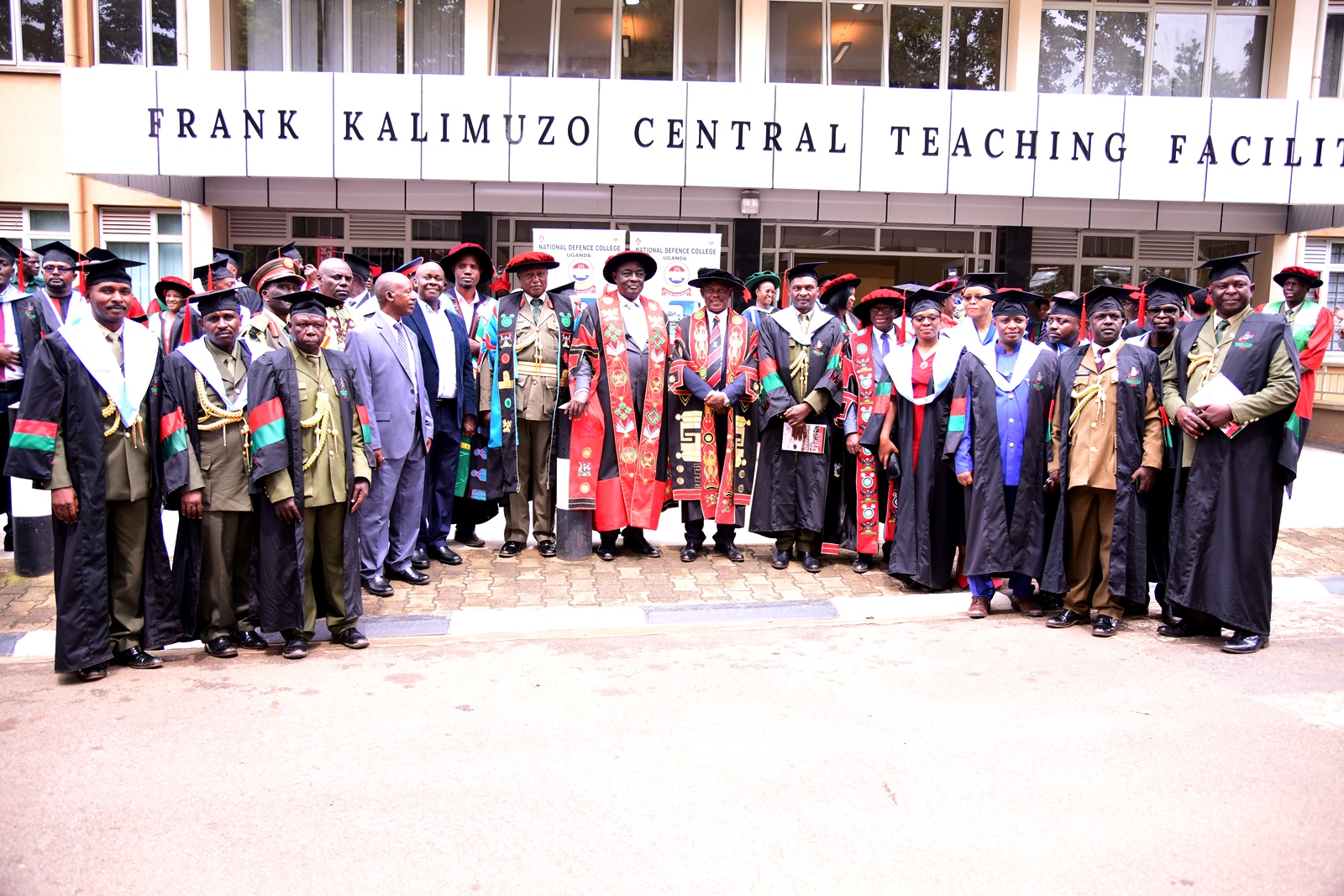
During the Mak 74th Graduation ceremony, the College of Humanities and Social Sciences (CHUSS) was recognized for outstanding performance. Besides leading in the production of the highest number of Doctoral candidates, CHUSS delivered the overall best humanities student and 85 UPDF officers who graduated with Diplomas and degrees in defence and security studies.
The college was also honored for delivering the First Black African Recipient of the prestigious “Lifetime Achievement Award”, and its staff appointments on regional and internal bodies and partnerships bearing fruits. Six members of staff were also announced for the Vice Chancellor’s Research Excellence Awards 2023. The college was hailed for authoring the centennial book highlighting the 100 years of the university service to humanity that was launched by the First lady and Minister of Education and Sports.
30 PhD candidates presented
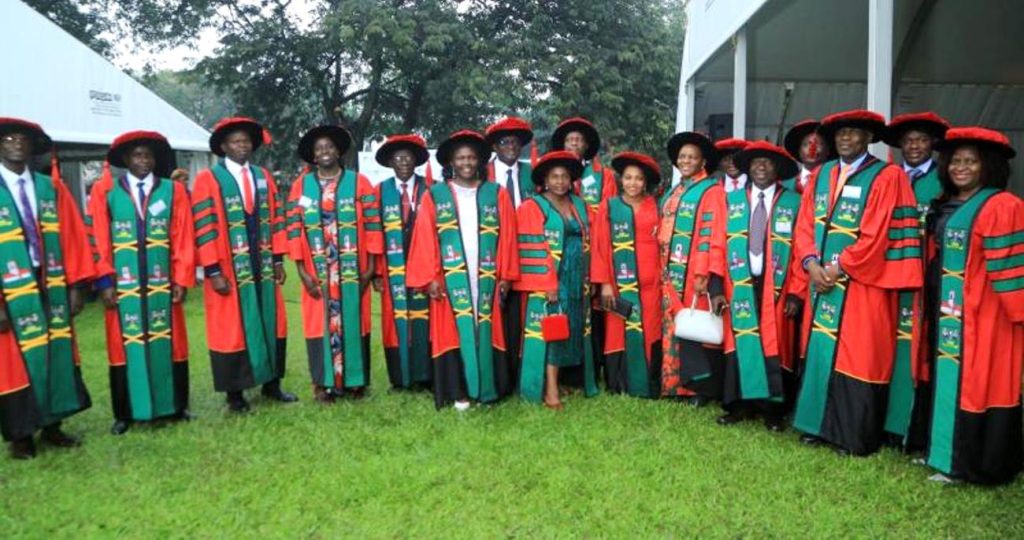
For the third time, CHUSS presented the highest number of PhDs totaling 30 out of 132 PhDs across the ten colleges representing 23%. The college also presented 260 Masters graduands out of 1585 across colleges a percentage share of 16.4% becoming the second to the College of Health Sciences. CHUSS also presented 1366 candidates for the award of Bachelor’s degrees, out of 11,016 ( 0.1%) and 45 postgraduate diploma candidates out of 156 (29%) across colleges. In total, the college presented close to 2000 candidates during the 5th session of the Mak 74th graduation ceremony held on 2nd February 2024.
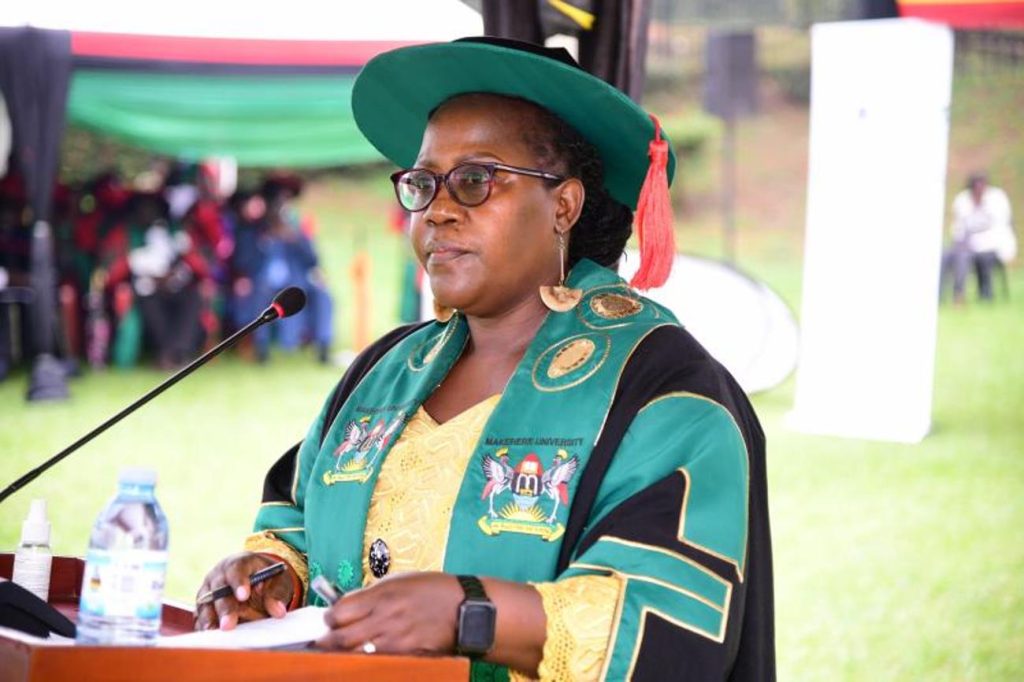
Presiding over the graduation ceremony, the Vice Chancellor Prof. Barnabas Nawangwe commended CHUSS leadership and staff for the consistent leadership in graduate output.
“This is a groundbreaking achievement. We congratulate the college leadership led by Prof. Josephine Ahikire for maintaining the lead in graduate output for three consecutive graduation ceremonies. Our goal is to graduate at least 200 PhDs per year in response to the World Bank call of at least 100,000 PhDs for Africa over the next 10 years, in order to pull our continent out of poverty”, Prof. Nawangwe appreciated
85 UPDF officers presented for graduation
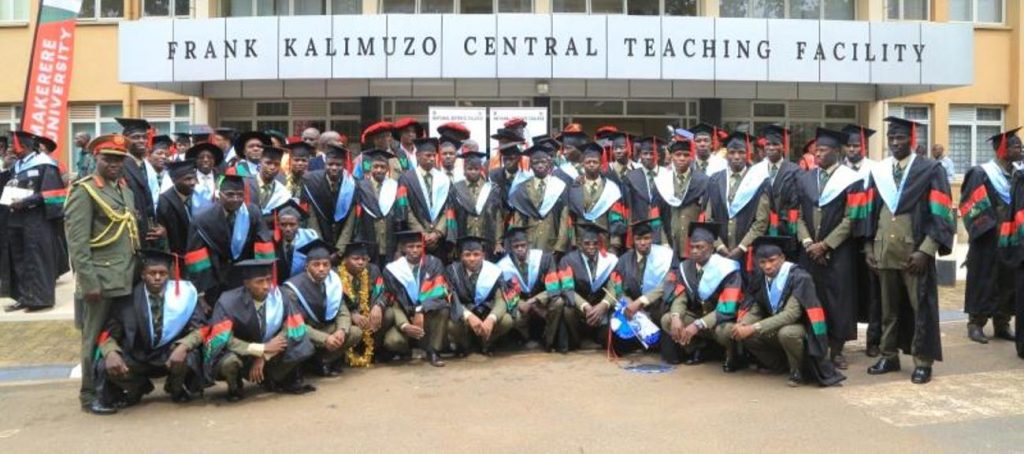
The college presented 85 Uganda Peoples Defence Forces (UPDF) generals, senior and junior staff officers who graduated with masters, bachelors and diplomas after completing studies in different disciplines related to defence, security and medical studies.The Vice Chancellor applauded CHUSS for this partnership noting that, it was historical.
“This is historical in the lifetime of Makerere and the UPDF where for the first time, a huge number of officers from our affiliated institutions of the National Defence College Uganda and Senior Command and Staff College Kimaka are walking away with awards. We congratulate Brig. Flavia Byekaso, Brig. Gen. Ruteran and Col. Edith Nakalema and the entire security team upon this achievement.”
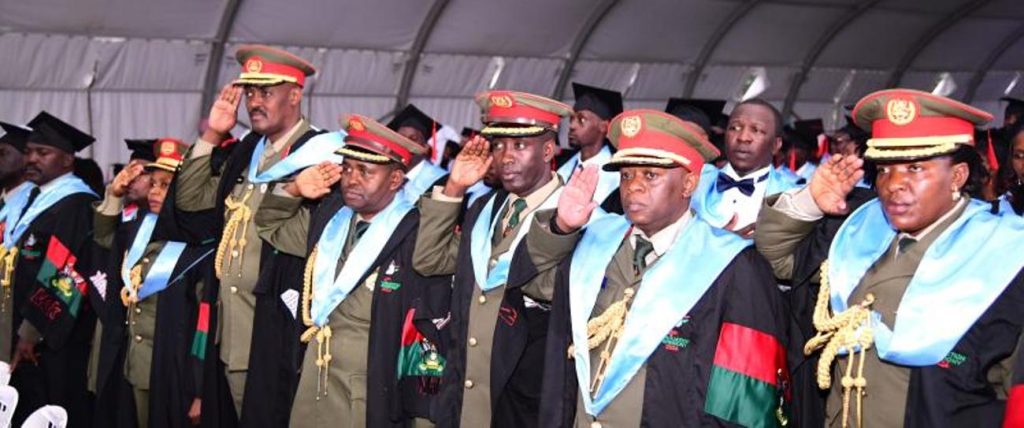
The Best Humanities Student Awarded
CHUSS also presented the best performing undergraduate student in the humanities. Mr.Tusubira Silas Wamala graduated with a Bachelor of Chinese and Asian Studies and tied with Atukunda Kevin of the a Bachelor of International Business (MUBS), with a CGPA of 4.84 out of 5.0. The students received plaques and one million shillings each from Makerere University Convocation chaired by Mr. George Turyamureeba.
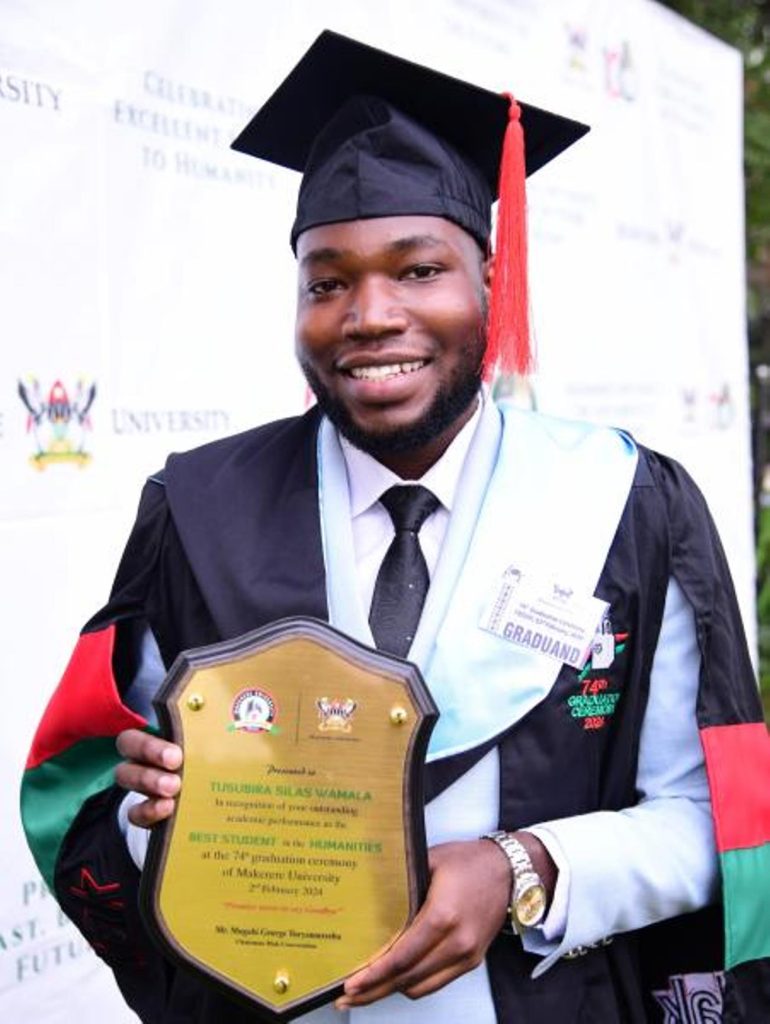
Assoc. Prof. Susan Kiguli’s Lifetime Achievement Award highlighted
The Vice Chancellor reported that on the global Scene, CHUSS delivered the First Black African recipient of the prestigious “Lifetime Achievement Award” in Italy at the Vercelli Seminar in August 2023. Makerere‘s Poet and Literary scholar, Assoc. Prof. Susan Kiguli who denounces violence and abuse of power in the black context was at the centre of the festival and Chief guest. Kiguli’s first book in Italy titled, The Weeping Lands” was published and launched fetching another prize called, the “Ali sul Mediterraneo Libri & Cultura” international award.”
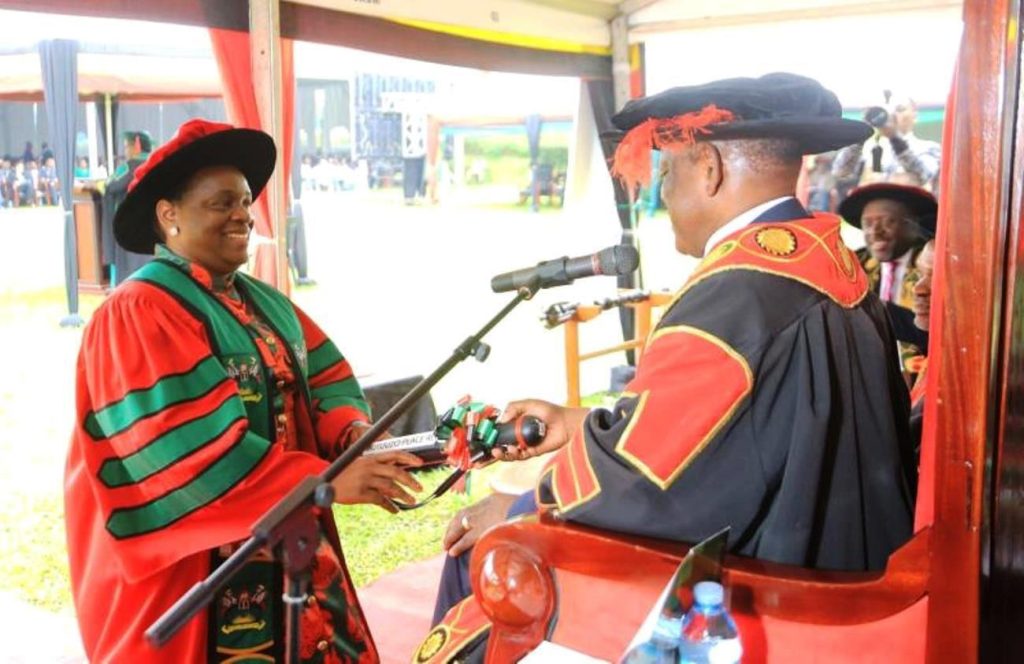
Six members of staff Receive the Vice Chancellor’s Research Excellence Awards 2023
Prof. Nawangwe reported that as a result of the various partnerships forged over time, research output in terms of innovations and publications has increased. The Vice Chancellor announced the inaugural Makerere University Vice Chancellor’s Research Excellence Awards, in recognition of outstanding performers in research and publication.
The award was based on the highest number of publications between the year 2017 and 2023 according to the Scopus database. Health Science Professors Moses Robert Kamya and Rhoda Wanyenze emerged as the Best Overall Male and Female Researchers respectively. Prof. Moses Robert Kamya has 271 publications and Prof. Rhoda Wanyenze has 153 publications in the aforementioned period.
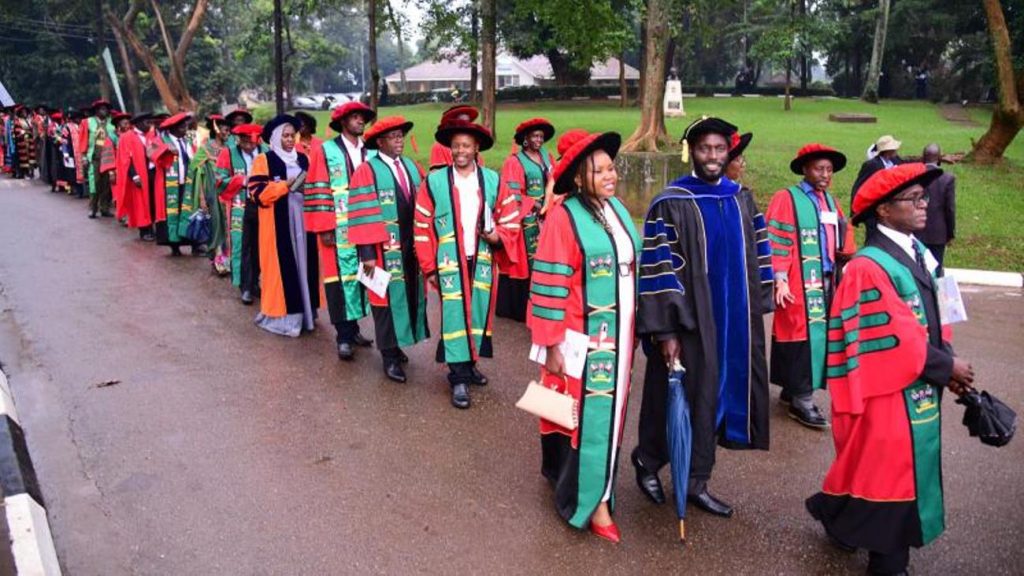
The Vice Chancellor recognized and congratulated six CHUSS researchers listed and published in the Graduation Booklet and the Mak News Magazine. The researchers were honored by the Vice Chancellor and Chairperson of Makerere University during the Convocation luncheon held at Makerere University Convocation House.
CHUSS best researchers included: Assoc. Prof. Walakira Eddy, Dr. Neema Stella, Dr. Baluku Martin, Dr. Kizito Simon, Dr. Mabingo Alfdaniels and Assoc. Prof. Twikirize Mwende Janestic.
Prof. Nawangwe urged all staff to continue conducting research on national development priorities as well as matters of global interest and publishing their work in high-impact journals so as contribute to Makerere’s drive to become a research-led university. He also advised on the need for the research to lead to patents, copyrights and trademarks, and tangible innovations in the form of products, policy briefs, manuals and others.
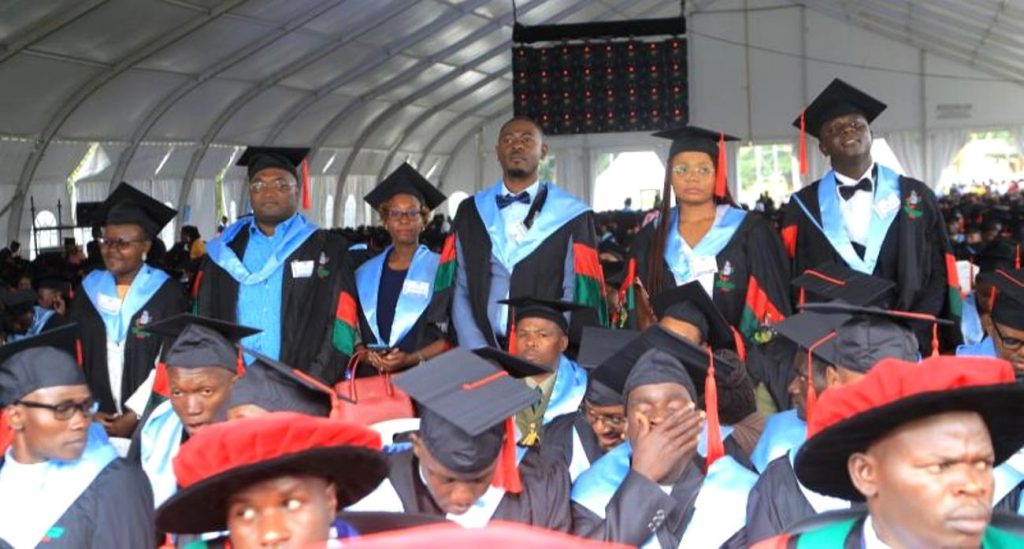
Partnership with the Kingdom of Saudi Arabia
The Vice Chancellor extended gratitude to the Kingdom of Saudi Arabia through its Royal Embassy in Uganda as one of the development partners working with the College of Humanities and Social Sciences at Makerere University. Nawangwe reported that the Royal Embassy of Saudi Arabia, and Makerere University have worked on several projects including a grant that benefited close to a hundred students who received bursaries to study Arabic at Makerere University and ICT equipment which have supported the teaching of Arabic language in the School of Languages, Literature and Communication.
“We also acknowledge the generous support to our moslem staff to fulfil the fifth pillar of Islam- Pilgrim to Mecca. We are also grateful for the ongoing initiatives being made to establish the Centre for Arabic Language Studies at CHUSS, support training and research in Oil and Gas, ICT and Engineering”. The Professor acknowledged.
Prof. Lyn Ossome, Director MISR elected President of CODESRIA 2023-2026
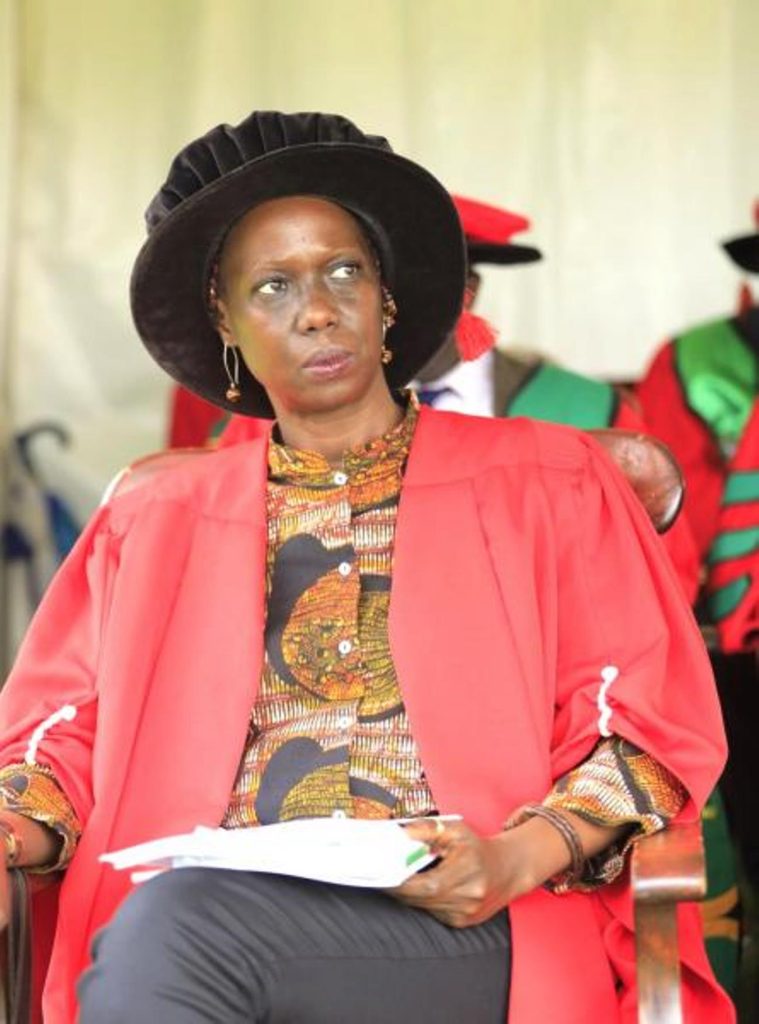
In his speech, the Vice Chancellor reported that the university participated in the 16th Council for Development of Social Sciences Research in Africa (CODESRIA) General Assembly on 4th to 8th December 2023 that was held in Dakar, Senegal where Prof. Lyn Ossome was elected president. The University also received a donation of 79 books from CODESRIA which were delivered and presented to the university library.
Launch of the Makerere University @100 book
Prof. Nawangwe informed the congregation that, as part of the Makerere centennial celebrations, the university has been able, with a team of editors and authors, to map out the 100-year journey of Makerere University. This book, titled Makerere’s Century of Service to East Africa and Beyond: 1922-2022 tells Makerere’s unique story as a university serving Uganda, East Africa and the world.
“As we consolidate our place on the knowledge generation stage, we are proud to share this publication with you. We specifically look forward to keep building for the future in the next 100 years of our University’s existence”. “I thank the following editors: Prof. A.B. Kasozi, Prof. Josephine Ahikire, Prof. Dominica Dipio, Prof. Helen Byamugisha and Dr. Isaac Tibasiima for the commitment to this noble task. I am delighted to report that this book has been published by our very own Makerere University Press”. The Vice Chancellor stated.
The book was officially launched by the First lady and Minister of Education and Sports represented by the State Minister for higher education Hon. John Chrysostom Muyingo witnessed by Chairperson of Council and members of top management.
The Vice chancellor highlighted a number of achievements recorded in the last two years including the issuance of transcripts and certificates before the graduation, the ground breaking research, innovations and partnerships.
Prof. Nawangwe acknowledged the support accorded by various stakeholders including Government of Uganda, development partners, parents and guardians, sponsors, and staff, without whom, it would have been impossible for the university to achieve the various milestones recorded over the years.
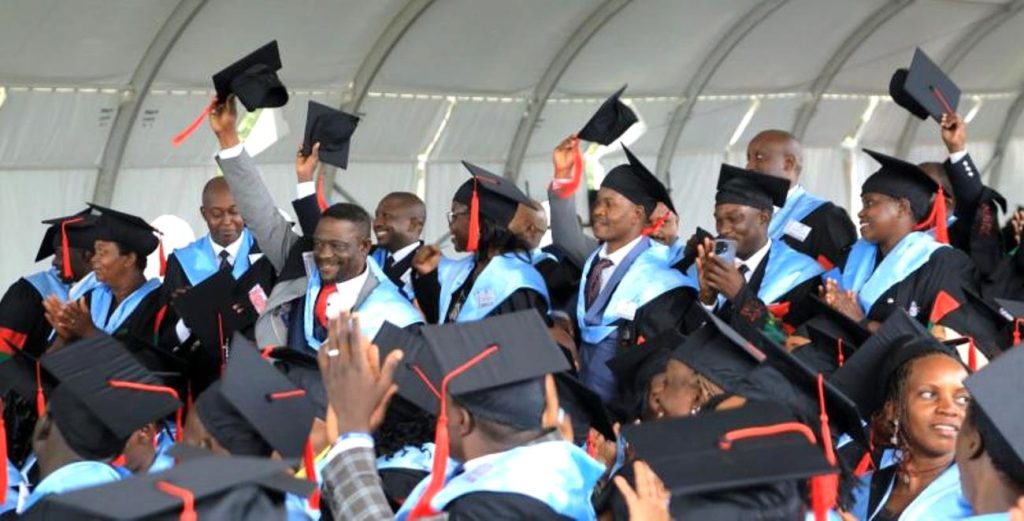
Vice Chancellor’s Message to the graduands
In his key message to the graduands, Prof. Nawangwe described graduation as the most important and most memorable day in the life of any scholar on grounds that it is a license to succeed in life, and a privilege to serve humanity.
“You have worked hard to get a degree or diploma from one of the best universities in the World. This is a license for you to succeed in whatever you choose to do in your life career. But always remember that success will only come with discipline and hard work, while honoring your parents and fearing God.
Shortly you will become an alumnus of this great institution. Cherish the knowledge and experiences you have collected while here, but remember that learning never ends. Our gates remain open for you if you wish to pursue higher degrees”, the professor advised.
With a degree from one of the best universities in the World, Prof. Nawangwe stressed, that graduates have no reason not to succeed in life.
“Indeed, the World is yours to conquer. If jobs are not forthcoming, create them, for we have empowered you not only to be employable, but also to be entrepreneurs. Be the light that others will follow. We are proud that we have been a part of your life, that we have given you the knowledge and courage to face life in this ever-changing World. Go out to the World and make it a better place”. He emphasized.
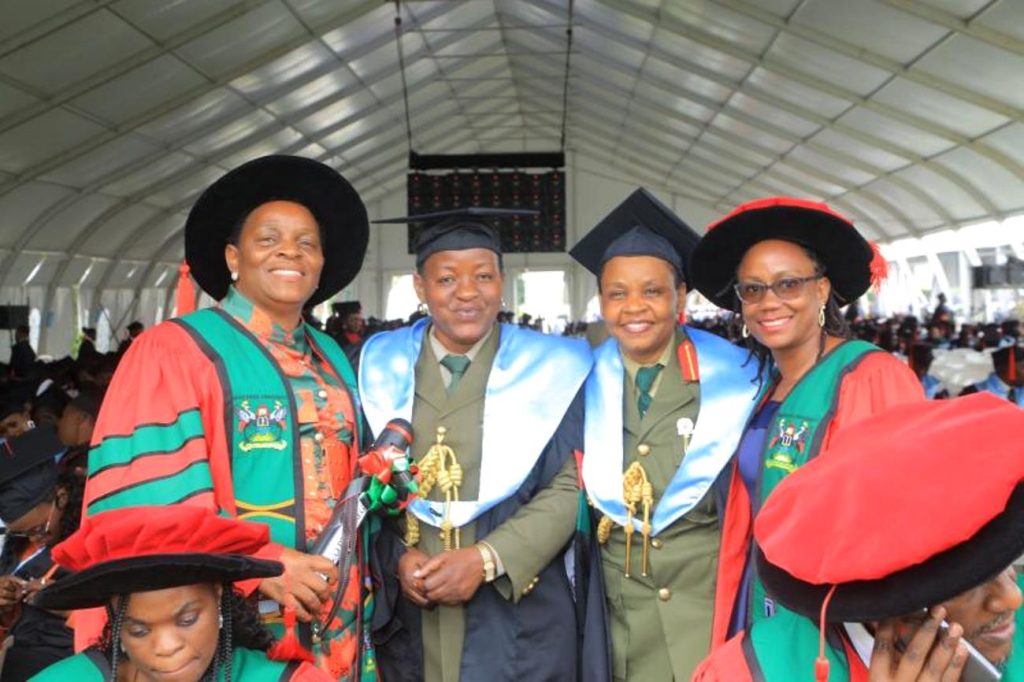
The Mak 74th Graduation statistics
During the course of the 74th graduation ceremony (Monday 29th January to 2nd February 2024) a total of 12,913 graduands received degrees and diplomas of Makerere University. Of these, a total of 132 graduands graduated with PhDs, 1585 with Masters degrees, 11,016 with Bachelor’s degrees, 156 with postgraduate diplomas, and 24 with undergraduate diplomas.
53% of the graduands were female and 47% were male. In the category of PhD graduands, 46 were female and 86 were male. In the category of students graduating with Master’s degrees, 699 were female and 886 were male.
You may like
-
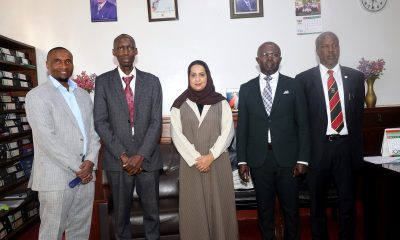

Mak CEES discusses partnership with King Salman Global Academy for the Arabic Language
-
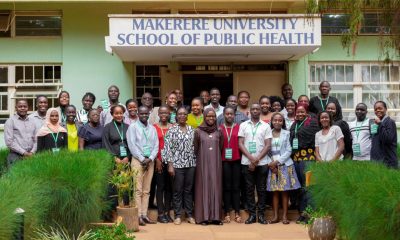

MakSPH, DJC Launch Short Course on Health Communication
-


Mak induction workshop empowers staff to execute their duties
-
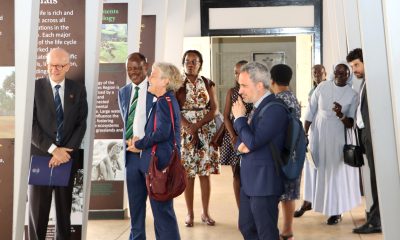

Makerere Marks 40 Years of Cultural and Academic Cooperation with the Italian Ethnographic Mission
-
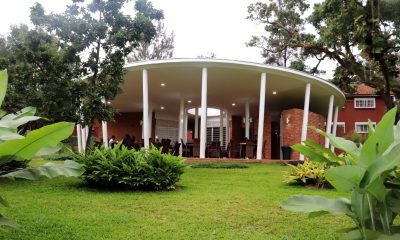

Call for Applications: MISR Interdisciplinary MPhil/PhD Programme 2026
-
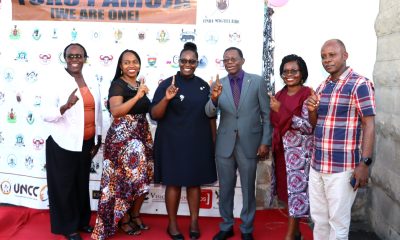

Makerere Screens Tuko Pamoja, Scholars Call for Creative Arts to Be Recognized as Research Output
General
Special Exam Results -Diploma in Performing Arts 2025/26
Published
4 days agoon
June 28, 2025By
Mak Editor
The results for the 2025/2026 special entry examination for the Diploma in Performing Arts held on Saturday 17th May, 2025. Candidates who scored a final mark of 50% and above passed the Examination and have been recommended to the university’s Admissions Committee for consideration.
Health
MakSPH, DJC Launch Short Course on Health Communication
Published
2 weeks agoon
June 20, 2025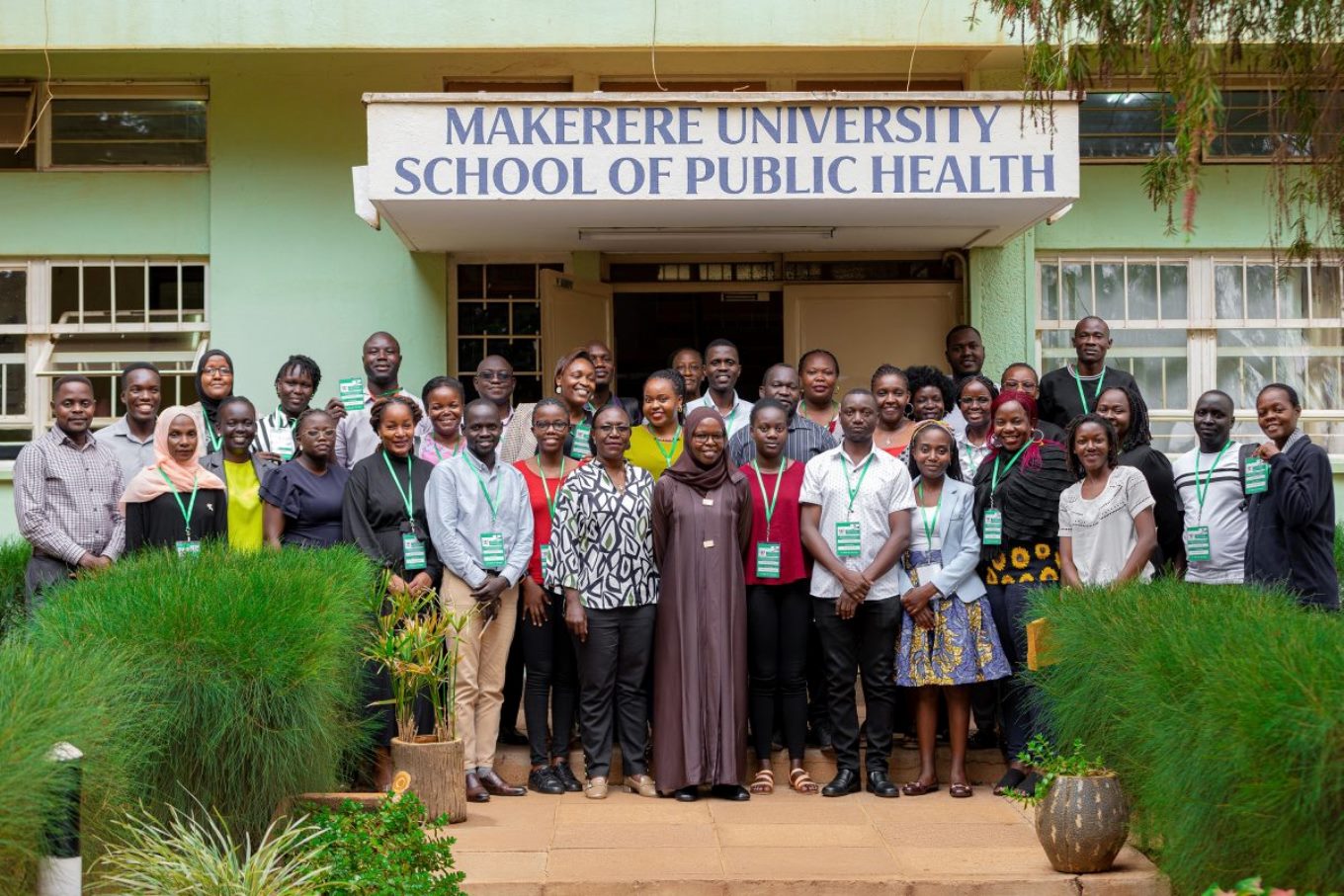
By Okeya John and Primrose Nabankema
The intensive one-month course, running for the first time from June 5 to July 24, 2025, is jointly offered by Makerere University School of Public Health (MakSPH)’s Department of Community Health and Behavioural Sciences (CHBS) and the Department of Journalism and Communication (DJC) at the School of Languages, Literature, and Communication (SLLC), co-designed in 2024 with support from the Rockefeller Foundation through Amref Health Africa.
It seeks to equip healthcare providers at the community level, public health and environmental health practitioners, communication specialists, health educators, community development officers, social scientists, and policy makers, among others, with strategic communication skills to improve public health messaging, strengthen community engagement, and support evidence-based interventions, ultimately empowering participants to effectively engage communities and improve population health outcomes across Uganda and the region.
Launching the course, the heads of the Department of Journalism and Communication and the Department of Community Health and Behavioural Sciences noted that participants who complete the short course will gain practical tools to influence behaviour change, build trust, and deliver timely, accurate, and relevant health information to the communities they serve. The first cohort attracted more than 60 applicants, with 36 reporting for the opening in-person session on June 5, 2025, at MakSPH in Mulago. Between now and July, participants will undergo a hands-on, multidisciplinary learning experience within the Certificate in Health Communication and Community Engagement program, which combines theory and practice.
Among the participants in the first cohort of the certificate course, designed as a pilot for the anticipated Master of Health Promotion and Communication to be jointly offered by the two departments at Makerere University, is Ms. Maureen Kisaakye, a medical laboratory technologist specialising in microbiology and antimicrobial resistance (AMR), and currently pursuing a Master’s in Immunology and Clinical Microbiology at Makerere. She is driven by a passion to help reverse the rising tide of AMR, a growing global health threat where drugs that once worked are no longer effective. Kisaakye is particularly concerned about common infections, like urinary tract infections, becoming increasingly resistant and harder to treat.
“I enrolled in this course because I’m an advocate against antimicrobial resistance, and it came at a time when I needed to deepen my knowledge on how to implement our projects more effectively and engage with communities. The experience has broadened my understanding of AMR and its impact on society, and strengthened my passion for community-driven health initiatives and advocacy,” Kisaakye said, explaining why she enrolled for the short course.
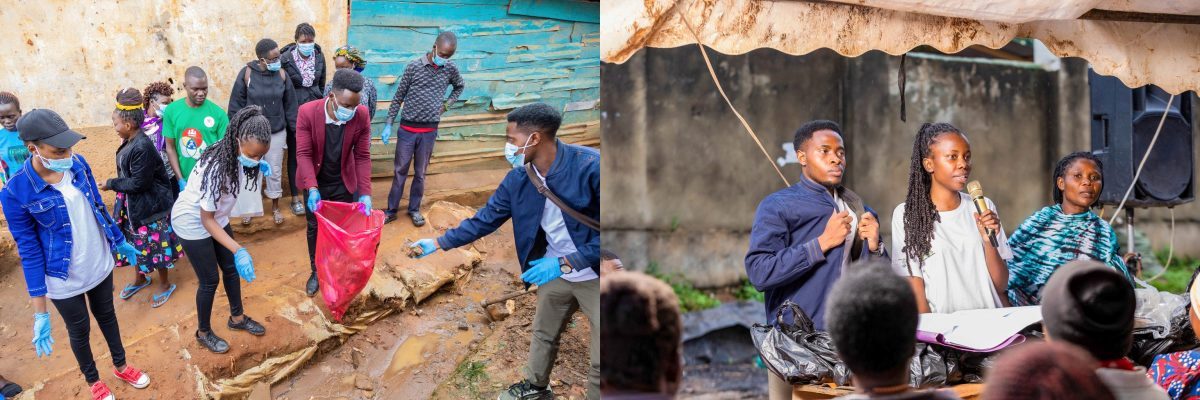
Kisaakye’s work in antimicrobial resistance extends beyond the lab. Having earned her degree in medical laboratory science from Mbarara University of Science and Technology, she founded Impala Tech Research in 2024 to drive impact and save lives. She has led grassroots AMR campaigns that integrate antimicrobial stewardship with water, sanitation, and hygiene (WASH) education in underserved urban communities, including the informal settlements in Kampala. She also has since designed peer-led initiatives that empower university students as AMR Champions, building a network of informed youth advocates. Kisaakye believes the health communication course will sharpen her ability to design and deliver impactful, community-centred interventions in response to the growing threat of drug resistance.
“The department collaborates with many partners within and beyond the University, including the School of Public Health, where we are working to develop the subfield of health communication and promotion. Our goal is to train specialists in this area and build a community of practice, something we have each been doing in our own spaces. There’s a lot of work ahead, and COVID-19 showed us just how urgently we need a generation trained to do this kind of work, and to do it very well,” said Dr. Aisha Nakiwala, Head of the Department of Journalism and Communication, during the opening of the short course on June 5.
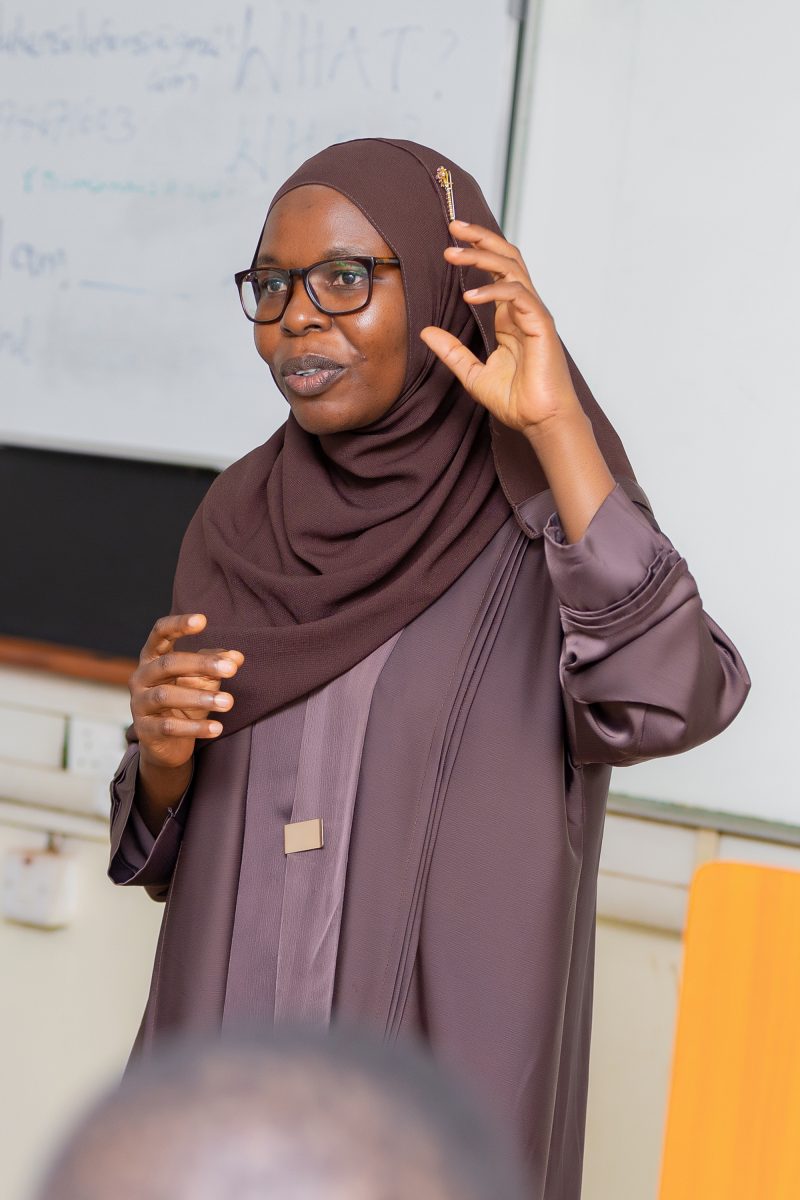
She assured participants they were in good hands and underscored the importance of the partnership between the Department of Journalism and Communication and the School of Public Health, describing it as a vital collaboration that brings together strategic communication and public health expertise. This dynamic, multidisciplinary approach, she noted, is essential to developing practical solutions that empower communities, strengthen health systems, and ultimately improve livelihoods.
The course offers a hands-on, multidisciplinary learning experience, with participants intended to explore key modules including Health Communication and Promotion, Risk Communication, Smart Advocacy, Community Mapping, Community Mobilisation and Empowerment, and Strategies for Community Engagement. The course combines theory with real-world application, and its assessment includes a field-based project and a final exam.
“You are our first cohort. We are seeing the fruits of our efforts in bringing this short course to life. It was born out of a joint initiative to develop a Master’s programme in Health Promotion and Communication,” said Dr. Christine Nalwadda, Head of the Department of Community Health and Behavioural Sciences. “We carried out extensive consultations with our different key stakeholders during the process and discovered a real need for such a course. It was the stakeholders who even named it; this course name didn’t come from us.”
For Kisaakye, by the end of the course in July, she hopes to have sharpened her skills in health promotion and strategic communication, particularly in crafting targeted messages that help individuals and communities effectively respond to threats such as antimicrobial resistance. She also aims to gain practical experience in designing, implementing, and evaluating community health initiatives that can strengthen her advocacy and drive lasting impact.
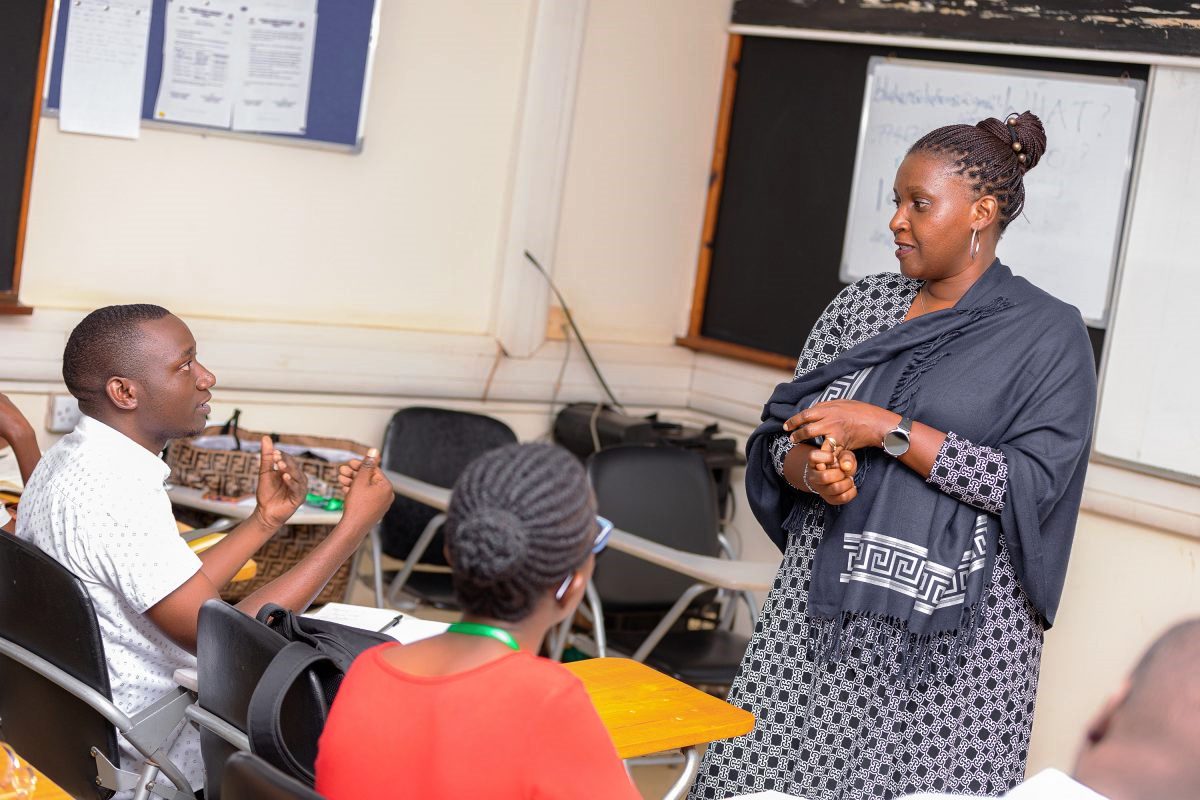
Humanities & Social Sciences
Makerere Marks 40 Years of Cultural and Academic Cooperation with the Italian Ethnographic Mission
Published
1 month agoon
May 19, 2025By
Jane Anyango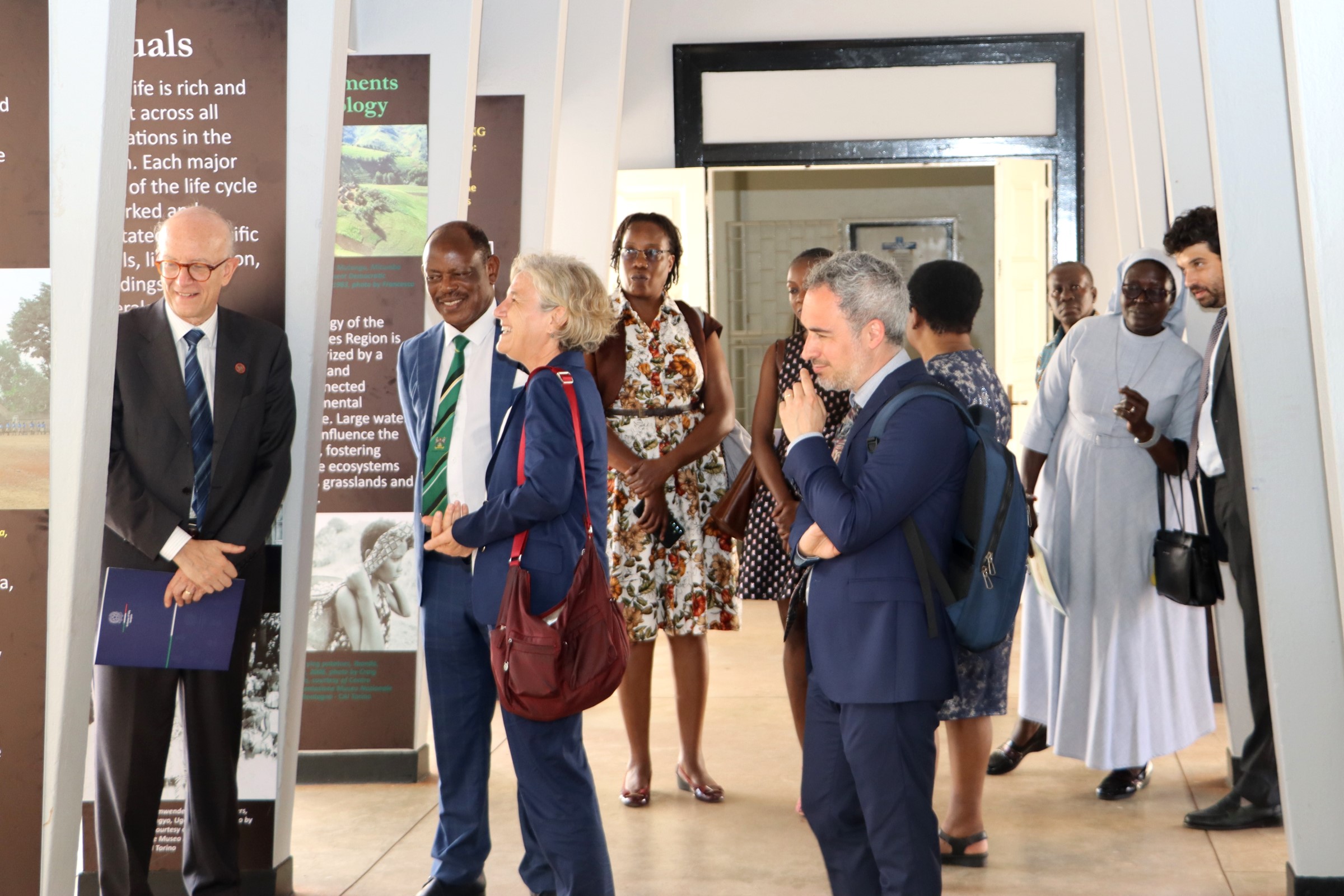
Minister calls on universities to Mainstream Cultural Studies
Kampala, Uganda | May 16, 2025 — Makerere University, in collaboration with the University of Turin and the Italian Embassy in Kampala, marked four decades of academic and cultural partnership with a landmark photographic exhibition titled “Connecting Cultures: The Italian Ethnological Mission in the Great Lakes Region.”
The exhibition, hosted at the College of Humanities and Social Sciences (CHUSS), visually chronicles over 40 years of Italian ethnographic research in Equatorial Africa. Since its establishment in 1979, the Italian Ethnological Mission—anchored at the University of Turin—has documented and studied the social and cultural fabric of the Great Lakes Region, including Uganda, the Democratic Republic of Congo, Rwanda, Burundi, and Tanzania.
Funded by the Italian Ministry of Foreign Affairs and International Cooperation and supported by the Erasmus+ programme, the mission focuses on topics including refugee integration, traditional knowledge, oral history, and cultural continuity.
The exhibition aims to share the Mission’s ethnographic insights, celebrate academic cooperation between Uganda and Italy, and highlight the deep interwoven cultural legacies of the region’s communities.
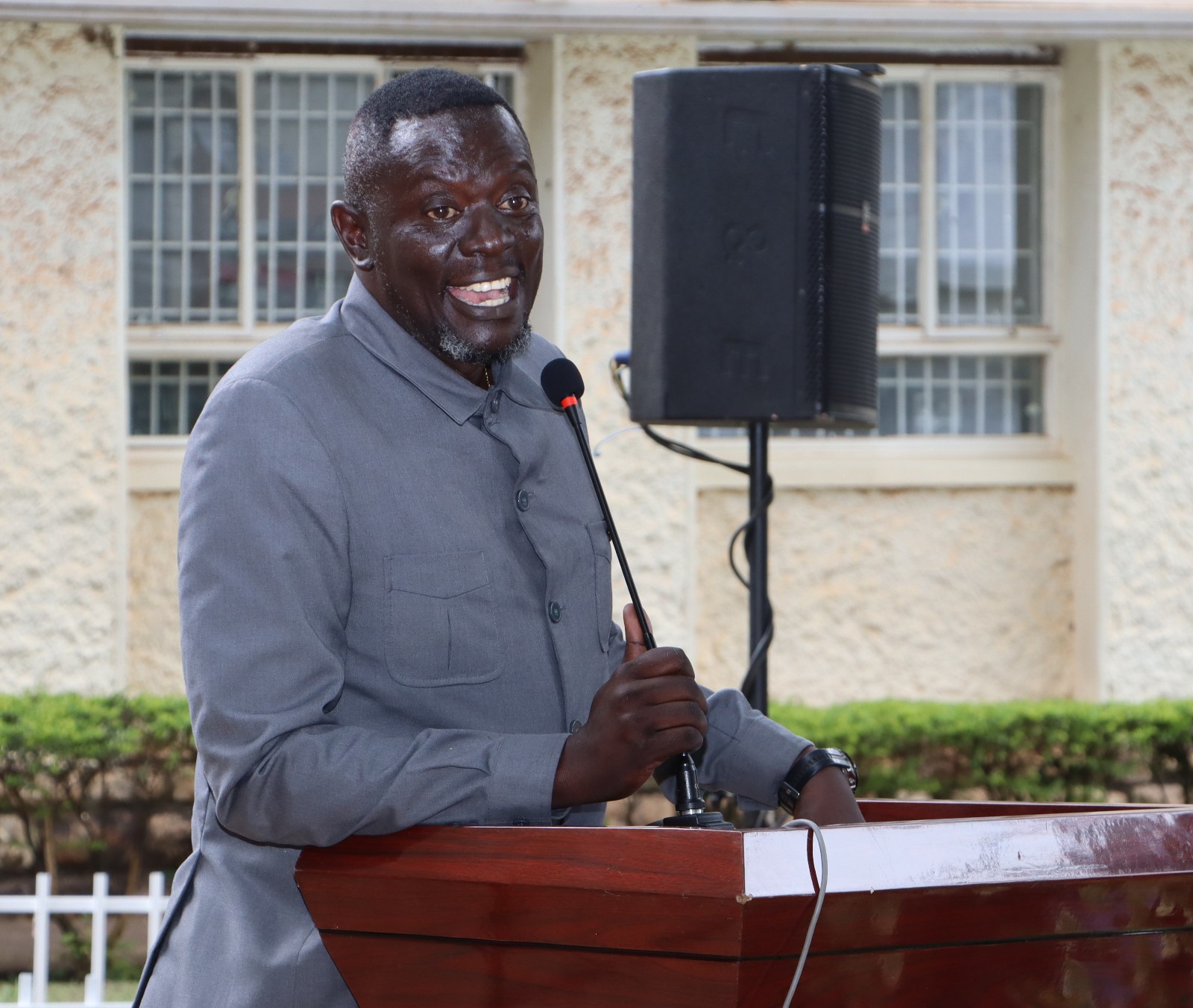
Presiding over the official opening on behalf of the Honorable Minister of State for Higher Education, Dr. John Chrysestom Muyingo, Commissioner Timothy Ssejjoba delivered a message emphasizing the educational significance of the initiative.
“This is not merely an exhibition of images,” he said. “It is a profound representation of intellectual partnership, cultural dialogue, and the enduring power of research and education to shape societies.”
Drawing inspiration from an African proverb—”When a child washes their hands, they dine with kings”—he acknowledged the honor of representing the Minister at such a distinguished gathering and used the opportunity to reaffirm government support for cultural preservation and academic innovation.
Commissioner Ssejjoba noted that Uganda’s aspirations, as articulated in the Vision 2040 and successive National Development Plans (NDP III and IV), align strongly with the goals of ethnographic research. He highlighted that investing in cultural heritage is not merely nostalgic but strategic for human capital development, social cohesion, and regional integration.

“In today’s world of globalization and displacement, ethnographic work becomes indispensable. It helps us preserve intangible heritage and build resilient, inclusive communities,” he said.
The commissioner commended the Italian Ethnological Mission, founded by Prof. Francesco Remotti and carried forward by Prof. Cecilia Pennacini and current Director Prof. Alessandro Gusman, for their long-standing engagement with Uganda and the wider Great Lakes Region.
Ministerial Appeal: Cultural Studies Are a Necessity, Not a Luxury
A key message in his remarks was a direct call to Uganda’s higher education institutions:
“I therefore call upon our universities to continue integrating cultural studies into mainstream curricula—not as a luxury, but as a necessity in building well-rounded, empathetic, and informed citizens.”
This appeal was underpinned by the government’s commitment to transformative education, as outlined in the Social Education Sector Strategic Plan, which seeks to produce globally minded graduates capable of addressing complex societal issues.
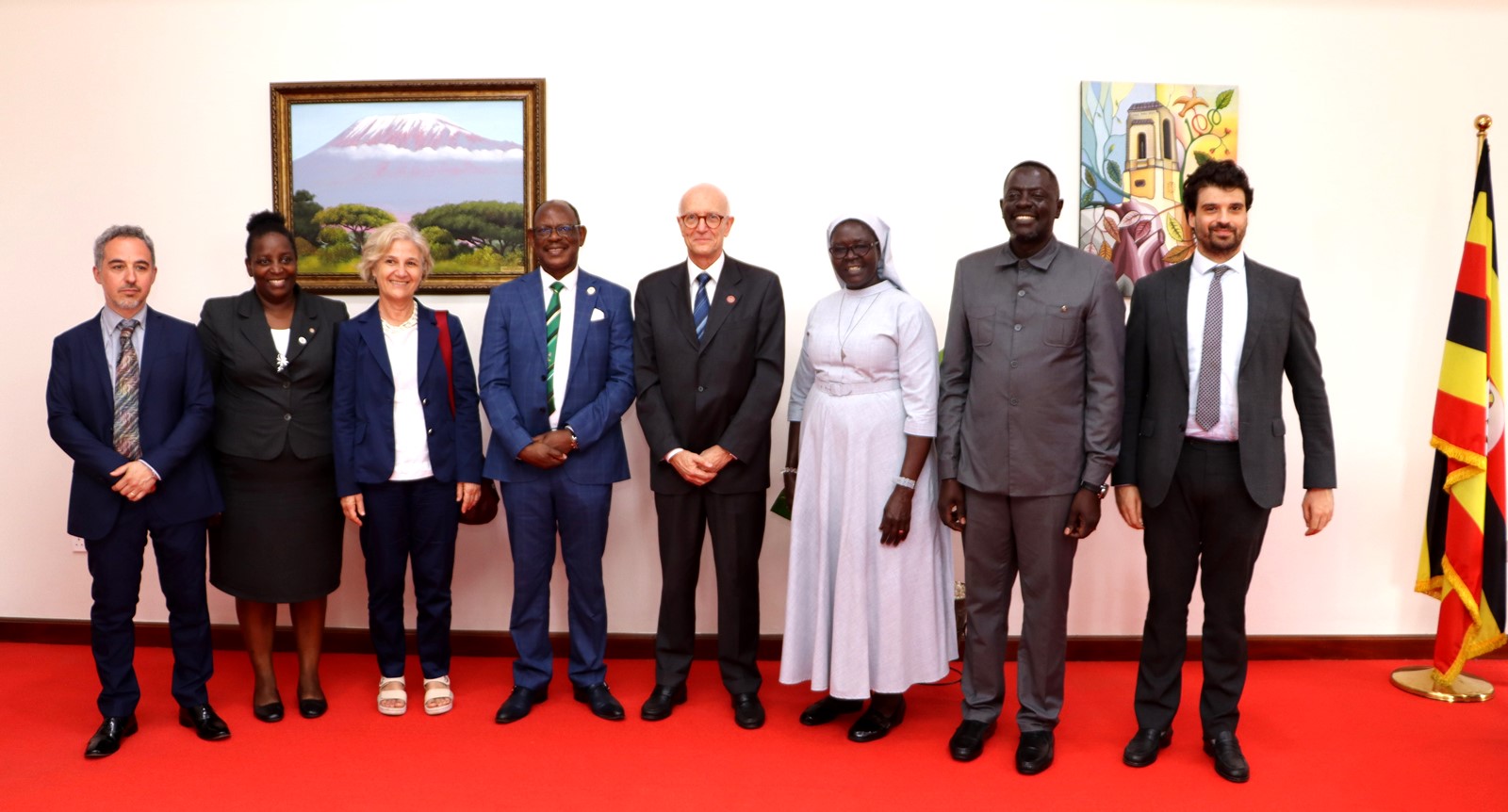
The commissioner also lauded the Erasmus+ Programme for facilitating student and staff mobility between Makerere and the University of Turin, significantly improving PhD completion rates and strengthening international research ties.
The Connecting Cultures exhibition offers a visual journey through four decades of ethnographic work, touching on themes such as identity, migration, oral traditions, music, and the social lives of communities across the region. It serves not only as a scholarly archive but also as a bridge between past and future generations.
“These photographs are living stories,” Ssejjoba emphasized. “They reflect identity, tradition, and the power of memory in shaping who we are—and who we aspire to become.”
In echoing the day’s theme, Commissioner Ssejjoba described the exhibition as “a testament to the transformative power of education, culture, and international solidarity.” He called upon development partners to support similar initiatives that use culture as a tool for peacebuilding, intercultural dialogue, and inclusive development.
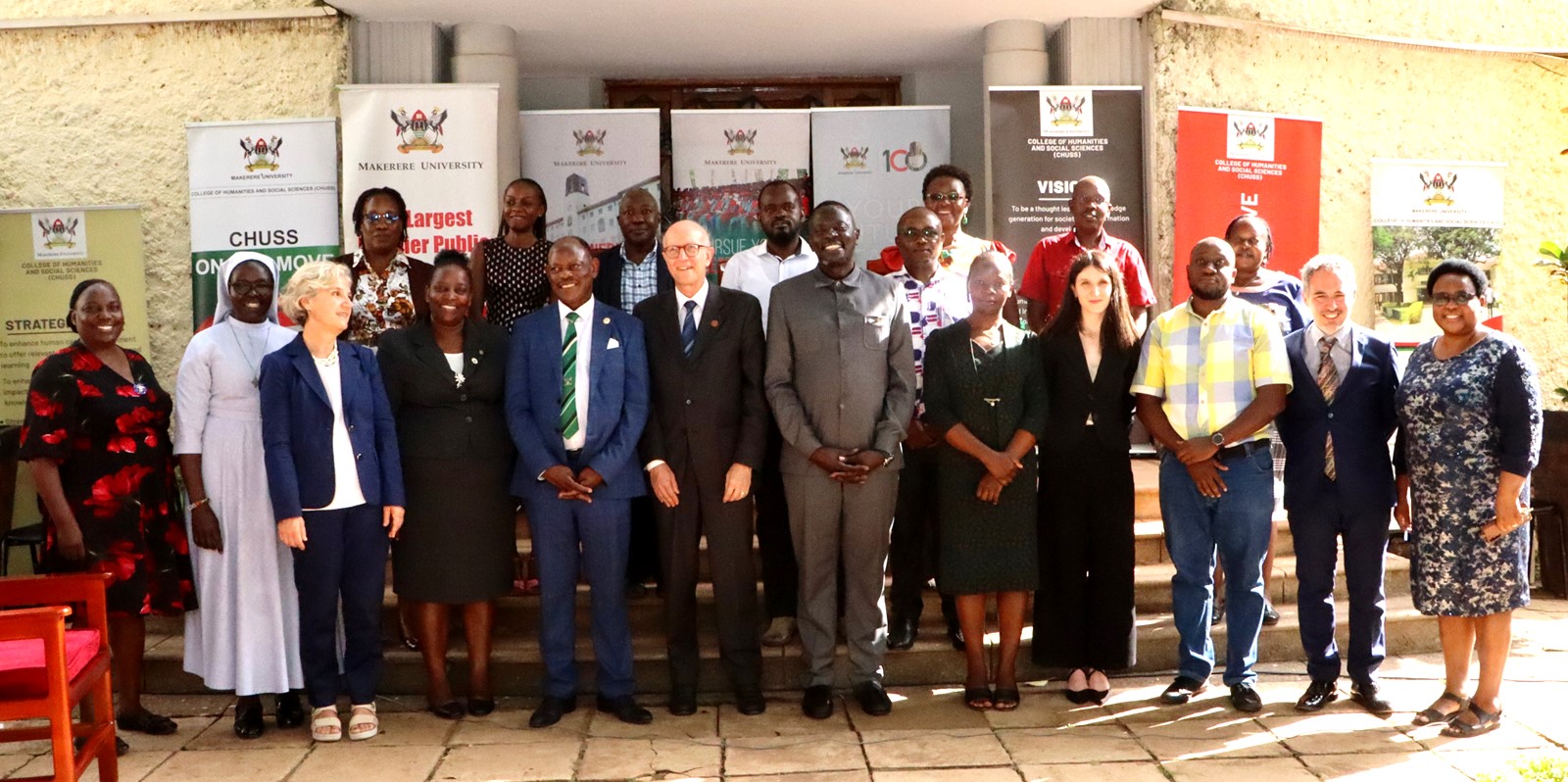
“To the students, researchers, and the broader public,” he concluded, “may you draw inspiration from this work. Let us preserve our cultural heritage, connect across borders, and use education as a force for progress.”
Italy Backs Cross-Cultural Research as Key to Social Transformation – Ambassador Massoni
Italy’s Ambassador to Uganda, H.E. Mauro Massoni, hailed cross-cultural academic collaboration as a powerful vehicle for social change, policy innovation, and mutual understanding, calling the partnership between Makerere University and the University of Turin a model for international cooperation.
Ambassador Massoni praised the longstanding collaboration between Italian and Ugandan scholars, particularly through the Italian Ethnological Mission in the Great Lakes Region. He noted that the mission, established over four decades ago, continues to foster intercultural dialogue and tackle shared global challenges through ethnographic research.
“This exhibition offers more than images. It tells the story of enduring cooperation—academic, cultural, and human—between our two countries,” he said. “It’s a testament to what we can achieve when we work together across disciplines, borders, and continents.”
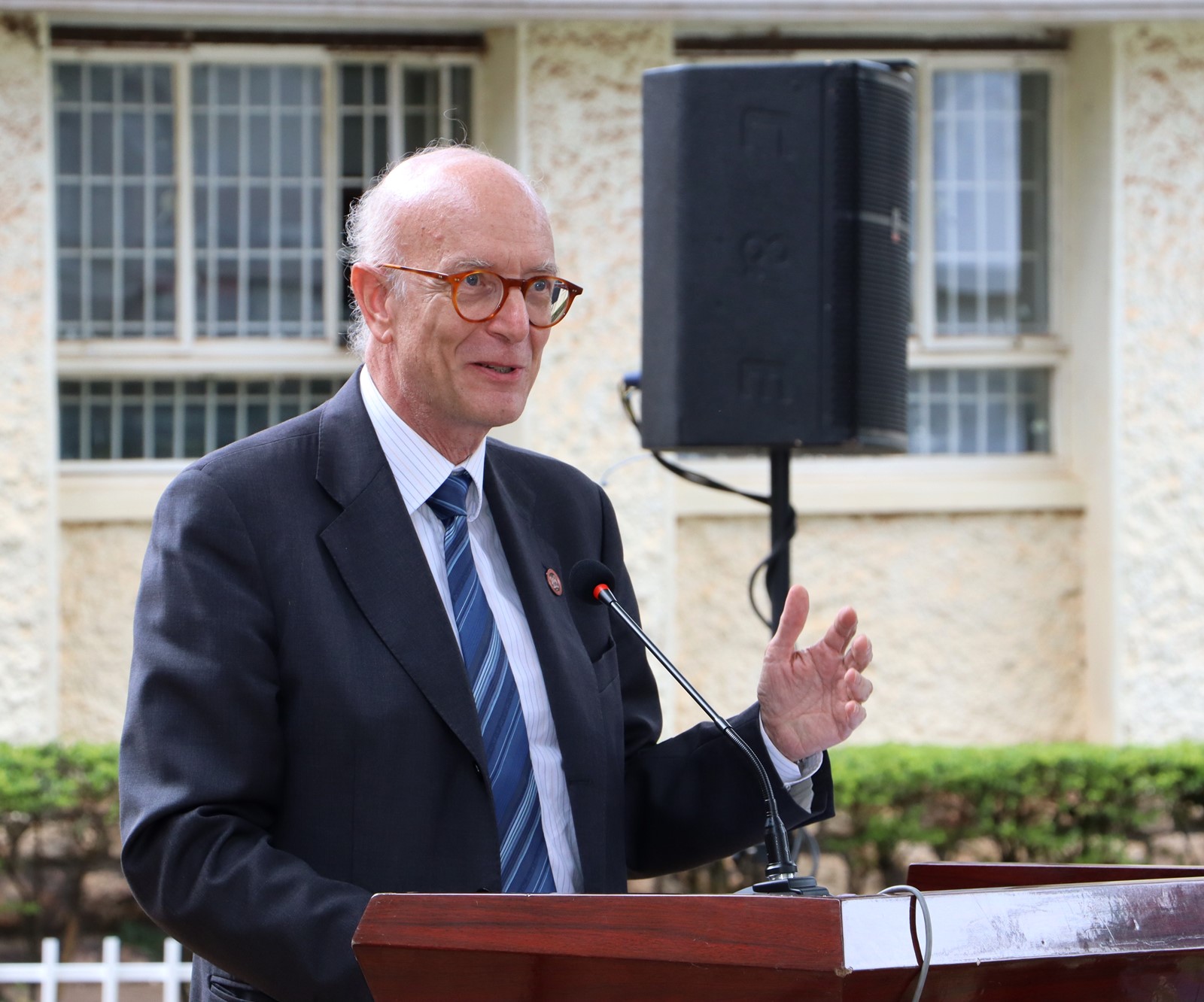
The Ambassador commended the University of Turin, particularly Professors Alessandro Gusman and Cecilia Pennacini, for their leadership in driving fieldwork-based research that links academia with community needs. He emphasized that the mission has not only enriched scholarly understanding but also played a role in social dialogue, community engagement, and humanitarian advocacy.
“This partnership transcends academic borders. It contributes to policy development and community cohesion. It shows how research—when rooted in empathy and equity—can improve lives,” he said.
Ambassador Massoni also spotlighted collaborative projects such as those examining migration, refugee experiences, and mobility in East Africa, many of which are supported by the Erasmus+ programme. These joint initiatives, he said, help address pressing social issues through shared academic pathways.
“Such work strengthens mutual comprehension and confronts the complex realities shaping our societies today,” he noted.
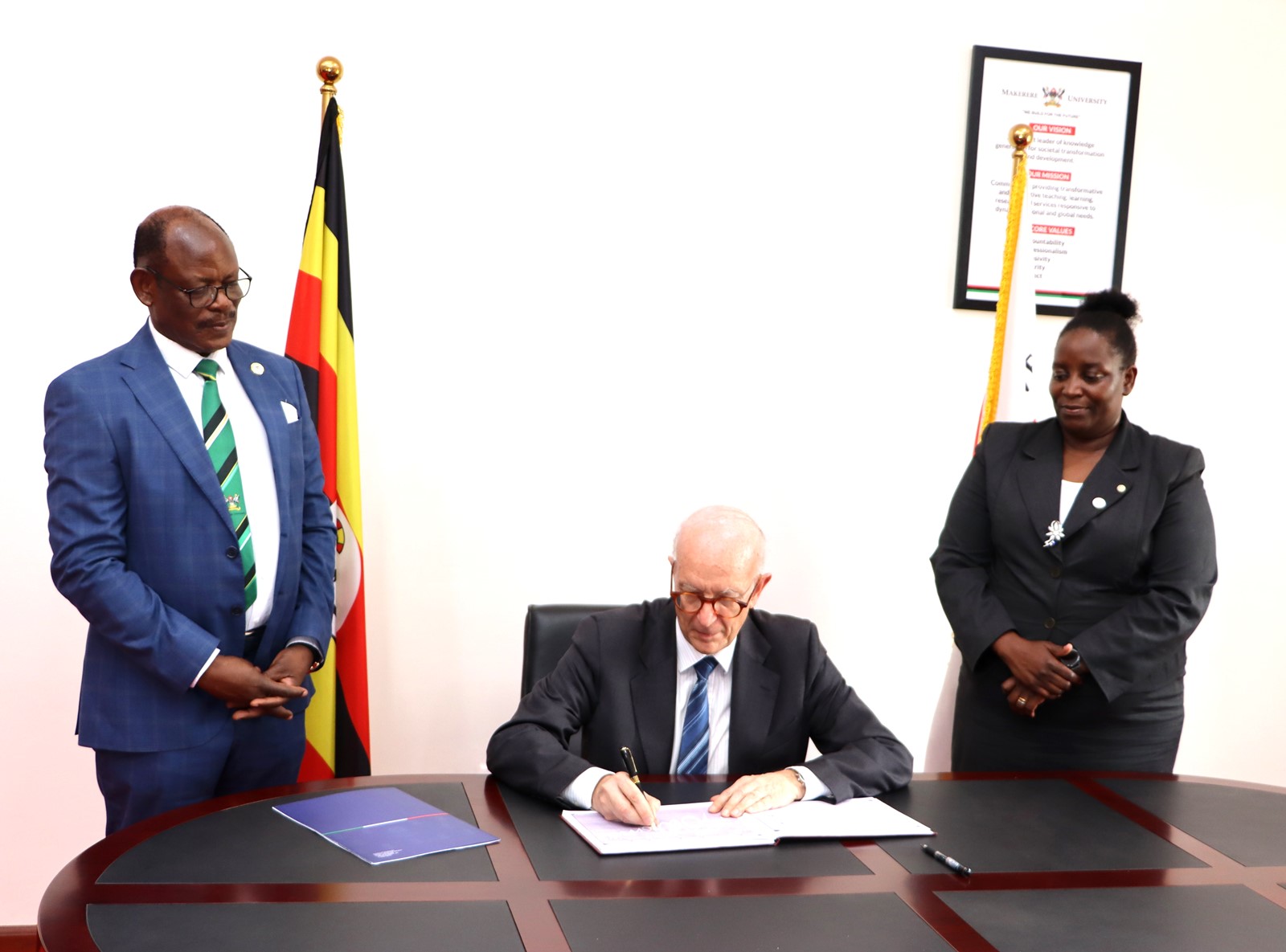
Additionally, he highlighted the recent launch of the Strengthening African-Italian Museum Partnerships project, supported by the Italian Agency for Development Cooperation. The initiative aims to digitize and preserve African cultural heritage in collaboration with major Italian and African museums, including the Uganda Museum.
“Italy is proud to support this effort. We see scientific diplomacy and cultural heritage as powerful tools for trust, understanding, and long-term collaboration,” he said.
In closing, Ambassador Massoni expressed gratitude to Makerere University and the wider academic and curatorial teams behind the exhibition. He encouraged guests to view the display not only as a celebration of past work but also as a call to future action.
“Let us continue building together—not only academic bridges—but human ones,” he concluded.
We must train more Archeologists and Anthropologists- Vice Chancellor Prof. Nawangwe
Makerere University Vice Chancellor, Prof. Barnabas Nawangwe hailed universities as key agents of peacebuilding and intercultural dialogue, emphasizing their critical role in advancing global understanding amid rising geopolitical tensions.
Prof. Nawangwe praised the longstanding collaboration between Makerere University and Italian institutions, calling it a shining example of how academic partnerships can foster peace and mutual respect.

“Universities are the best engines for promoting peace in the world. There is no better institution than a university to bring people and cultures together,” Prof. Nawangwe asserted.
Reflecting on historical ties, Nawangwe recalled the substantial support Makerere received from the Italian government during the 1987 donor conference, particularly in reviving the Faculty of Technology. He noted that the impact of such partnerships goes beyond infrastructure and education, contributing to nation-building and lasting international friendships.
“I personally benefited from those exchanges. I lived in Italy for a month, studied the language, and engaged with Italian culture. These interactions create lifelong connections,” he said.
He pointed to Makerere‘s global footprint as a leading research institution, recently ranked by Times Higher Education as the most collaborative university in the world, based on international research partnerships.
“At Makerere, we have more researchers publishing with colleagues from other universities than anywhere else. This collaborative spirit reflects our belief in academic diplomacy as a force for development,” he explained.
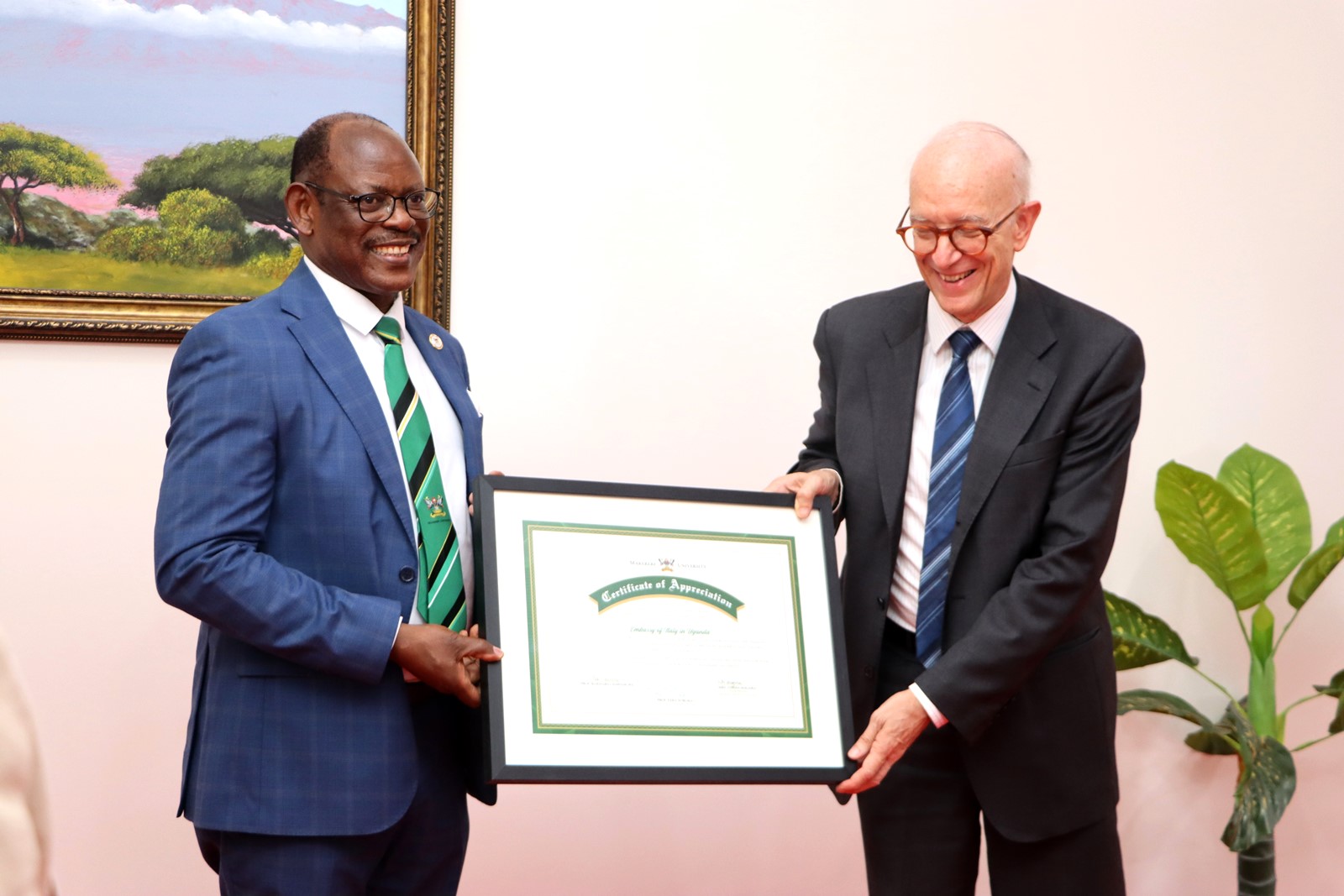
Prof. Nawangwe highlighted the university’s particularly strong ties with Italy, noting that most of its Erasmus+ academic exchange agreements are with Italian institutions. He attributed this to the deep-rooted friendship between Uganda and Italy, with Makerere acting as “Uganda compressed in one place.”
Praising the exhibition’s vivid portrayal of East and Central African cultural heritage through photography, Nawangwe called visual documentation one of the most powerful tools for preserving and communicating knowledge.
“A photographic illustration is the strongest kind of evidence. It stays with you. What I saw today helped bring to life things I’ve only read or heard about,” he said.
The Vice Chancellor also expressed concern over the limited development of disciplines like archaeology in Uganda, describing it as “a shame” that the country only recently graduated its first archaeologist.
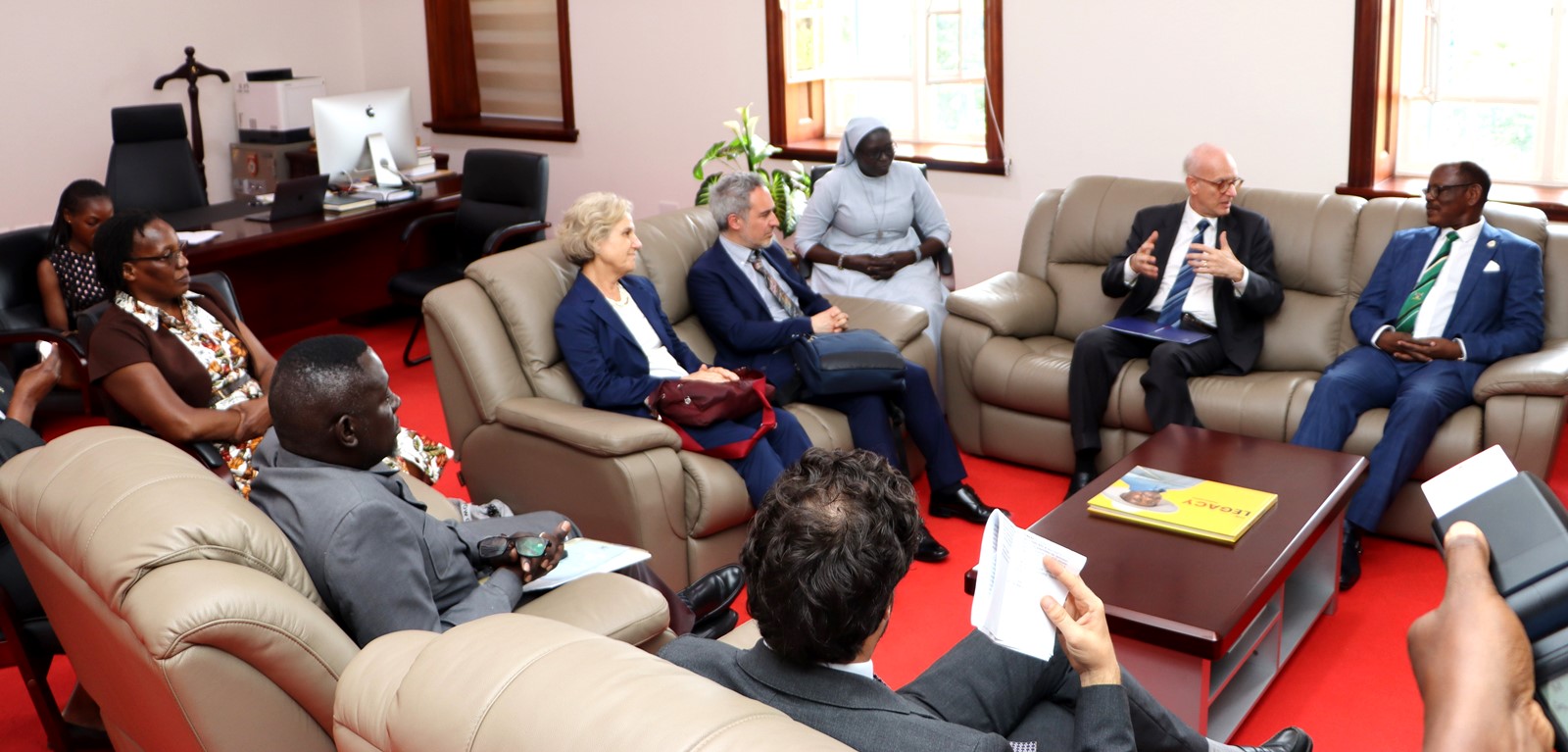
“With all our cultural diversity and historical wealth, how can archaeology be new in Uganda? We must train more archaeologists and anthropologists to study our own heritage,” he urged.
He concluded by encouraging scholars to remain committed to cultural research and international collaboration, thanking the Italian Embassy for its continued support in fostering ties between Uganda and Italy.
“We must keep walking in our pursuit of knowledge, peace, and progress for Uganda and the world,” Nawangwe said, in his characteristic blend of seriousness and humor.
Nkabala Calls for Introduction of Italian Language at Makerere to Deepen Cultural Connections
Associate Professor Helen Nambalirwa Nkabala, Principal of the College of Humanities and Social Sciences (CHUSS), called for the introduction of Italian language instruction at the university as a strategic step in strengthening cultural and academic ties between Uganda and Italy.
Prof. Nkabala emphasized the importance of language in fostering deeper intercultural understanding and advancing the university’s global engagement agenda.
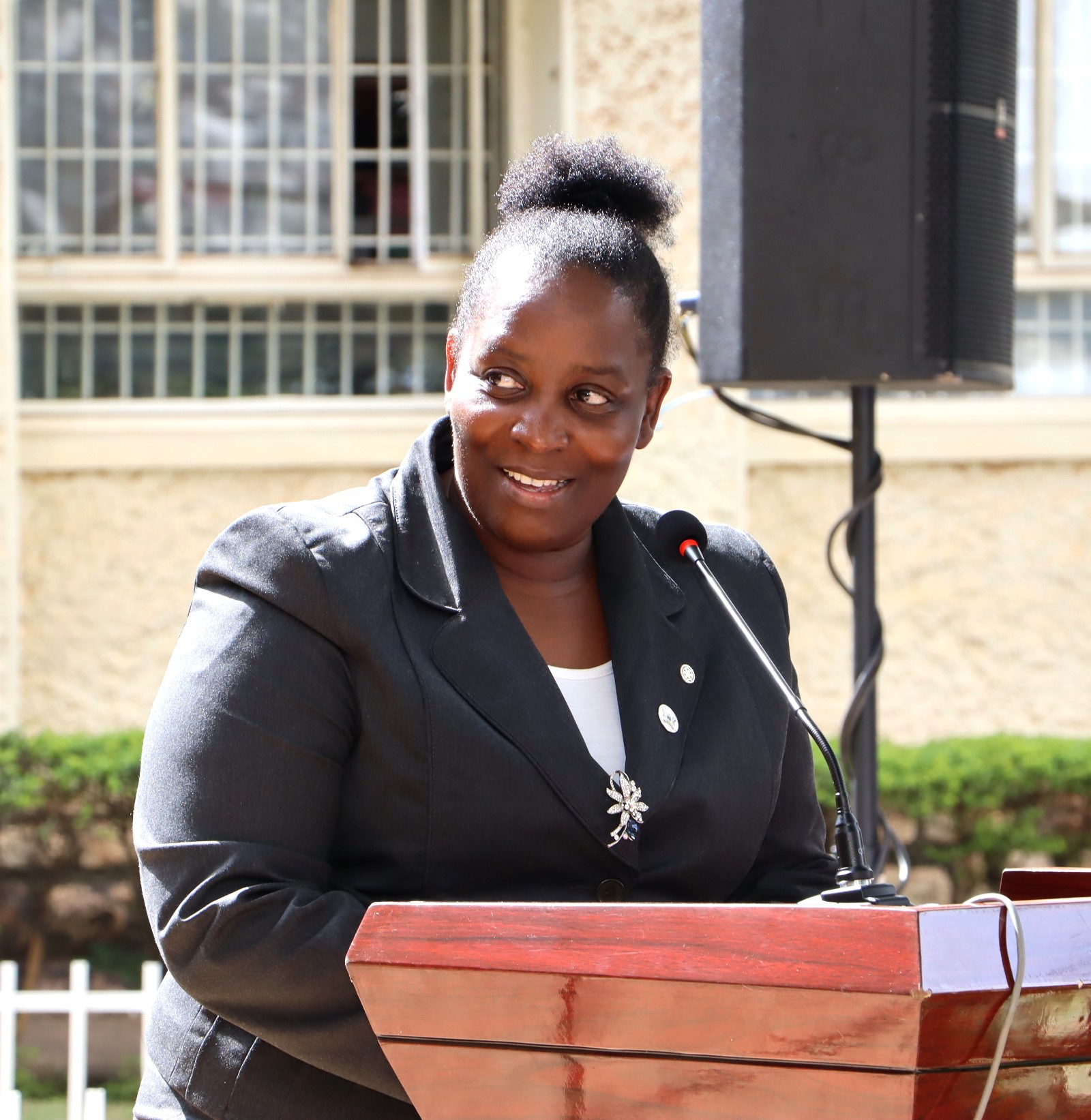
“In addition to what is already happening, we’d like to invite you to the School of Languages, Literature, and Communication so that we can start teaching Italian at Makerere University. When we talk about connecting cultures, issues of poetry come in,” Nkabala said.
The principal highlighted the longstanding relationship between Makerere University and Italian academic institutions, referencing ongoing collaborations with the University of Turin, the European Academy of Religion, and new engagements with Sapienza University of Rome. She also acknowledged support from Italian scholars such as Prof. Alessandro Gusman and Prof. Cecilia Pennacini.
“Friends, today is testimony that the College of Humanities and Social Sciences will use all that is within its means to change the narrative,” she said, referring to the exhibition as a powerful demonstration of the college’s research impact and cultural outreach.
Prof. Nkabala praised Makerere’s deans, heads of departments, and academic staff for their collective efforts in organizing the exhibition, and extended special appreciation to the Italian Embassy in Kampala for its continued logistical and visa support, which has enabled seamless academic exchange.
“Our academics never get problems because you have a very dynamic team. We thank you very much for allowing them the opportunity to support us when we need it,” she noted, addressing Italian Ambassador Mauro Massoni directly.
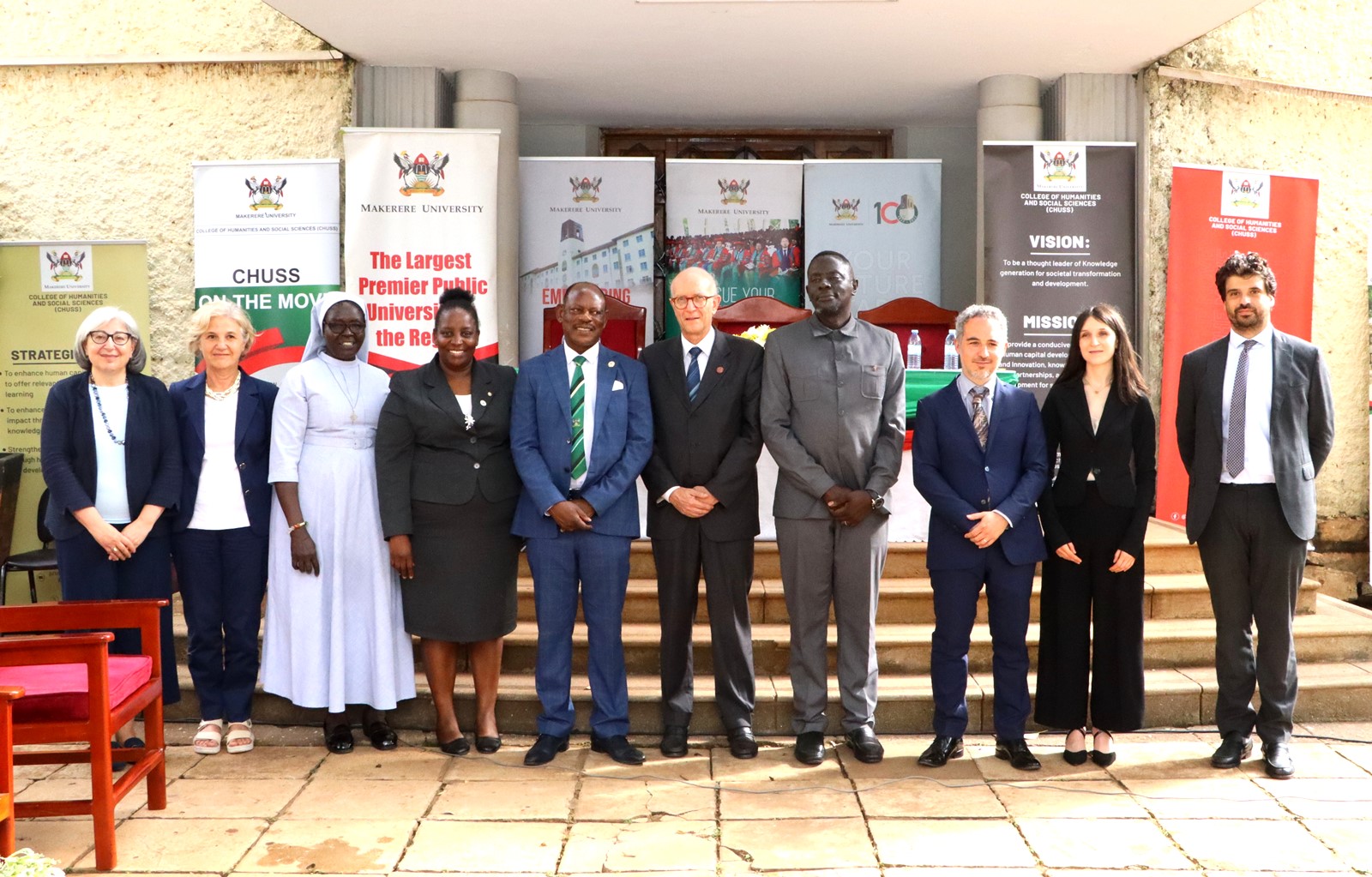
She also paid tribute to predecessors, including Prof. Josephine Ahikire and the former Principal Prof. Edward Kirumira, for their role in laying the foundation for enduring academic partnerships between Uganda and Italy.
As the College of Humanities and Social Sciences continues to expand its international footprint, Nkabala urged faculty and students to remain committed to collaboration and participation in future joint initiatives.
“Colleagues, I call upon you to be present when called upon,” she said, reaffirming CHUSS’ dedication to cultural diplomacy through research, language, and the arts.
Africa Offers the World Wisdom and Science—Prof. Pennacini Urges New Era of Equal Academic Partnerships
Professor Cecilia Pennacini, former Director of the Italian Ethnographic Mission in the Great Lakes Region called for a paradigm shift in Africanist research and cultural cooperation, asserting that Africa offers the world invaluable wisdom, philosophy, and science.
Prof. Pennacini emphasized that Italian scholars came to Africa “not to teach, but to learn.”
“The ancient civilizations of Africa have so much to teach the Western world—in terms of knowledge, wisdom, philosophy, politics, even science and art,” she said. “This is why our mission has always been grounded in humility and mutual respect.”
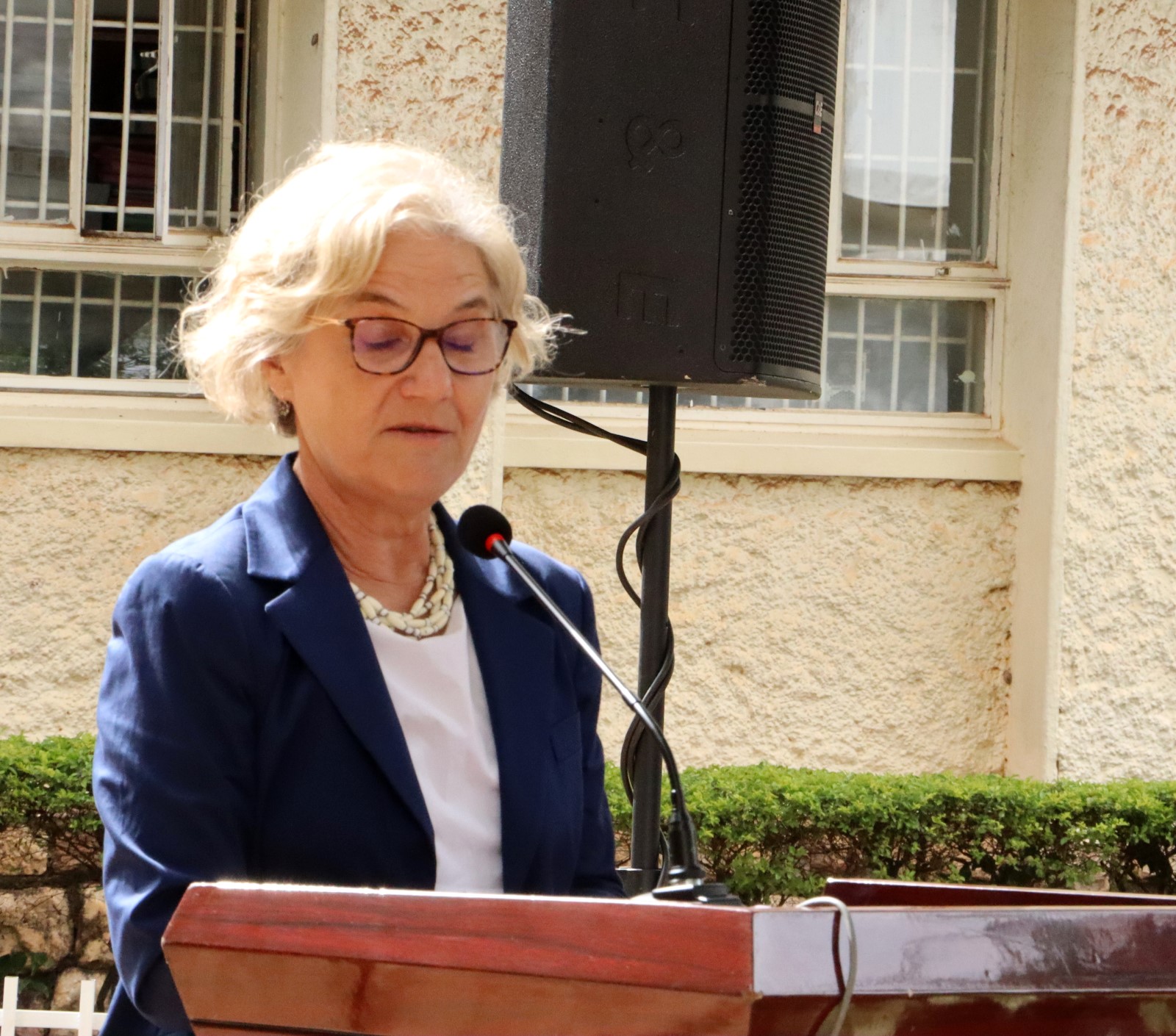
Prof. Pennacini reflected on the foundational vision of the Italian Ethnographic Mission, established by her mentor, Prof. Francesco Remotti, who advocated for fieldwork rooted in cultural dialogue rather than colonial paradigms of knowledge extraction.
Upon assuming leadership of the Mission in 2005, Pennacini prioritized creating equal academic partnerships. She credited this approach with the establishment of a formal collaboration with Makerere University, which has since flourished through joint research, teaching exchanges, and mobility programs funded by the European Union’s Erasmus+ initiative.
“We have grown together—building common knowledge and hopefully laying foundations for future generations,” she noted.
Prof. Pennacini also announced a major new initiative aimed at transforming museum practice and cultural preservation across Africa and Europe. The project, Strengthening African-Italian Museum Partnerships, is supported by the Italian Agency for International Development Cooperation (AICS) and will connect eight museums—four in Africa and four in Italy.
Participating institutions include the Uganda Museum, the National Museum of Ethiopia, the National Museum of Lubumbashi in the DRC, and the Ethnographic Museum at Addis Ababa University. These will collaborate with the Museum of Civilizations in Rome, the Royal Museums of Turin, the Savoy Residences in Piedmont, and the Anthropology and Ethnography Museum at the University of Turin.
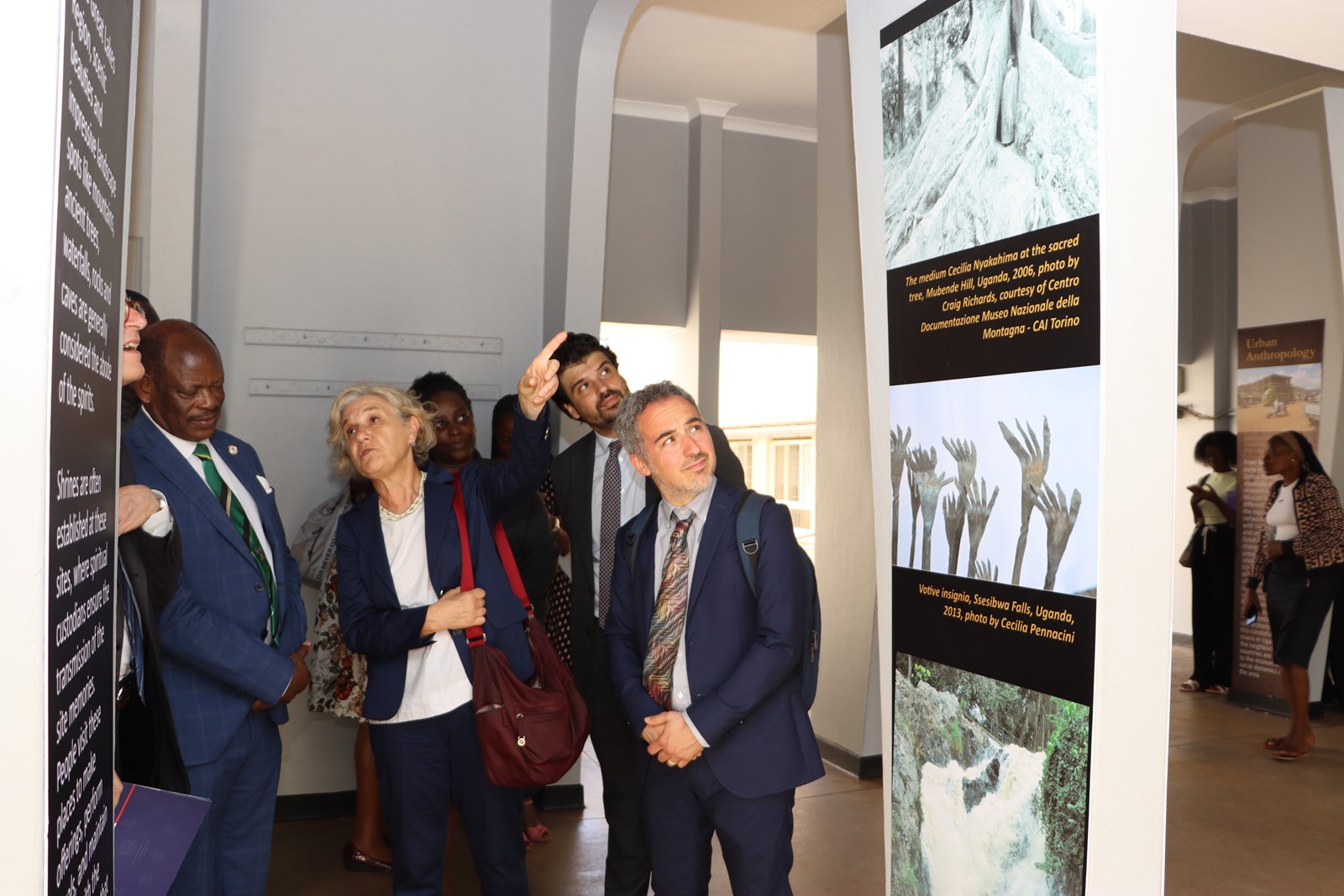
“This project seeks to digitize, catalogue, and valorize ethnological and artistic collections through a participatory approach,” she said. “It will involve local communities, diaspora groups, and civil society as co-creators of museum life.”
Prof. Pennacini stressed the need for museums to be transparent about the provenance of their collections and to embrace inclusive narratives that reflect source communities’ voices. She tied this initiative to Italy’s broader commitment to a redefined model of cooperation inspired by the Mattei Plan for Africa, which promotes non-exploitative, mutually beneficial partnerships.
“Culture must be seen as a fundamental pillar of human development—socially, economically, and intellectually,” she concluded.
Italian Ethnological Mission Celebrates 46 Years of Cultural Research and Partnership in the Great Lakes Region — Prof. Gusman
Professor Alessandro Gusman, Director of the Italian Ethnological Mission in the Great Lakes Region, reaffirmed the mission’s enduring commitment to linking people, cultures, and institutions across national borders through academic and cultural research.
Prof. Gusman described the event as both a celebration and a reflection on 46 years of Italian ethnological research in East Africa, particularly the Great Lakes Region.
“This exhibition retraces the history of our work and celebrates our long-standing collaboration with Makerere University, one of the most esteemed academic institutions in East Africa,” he said.
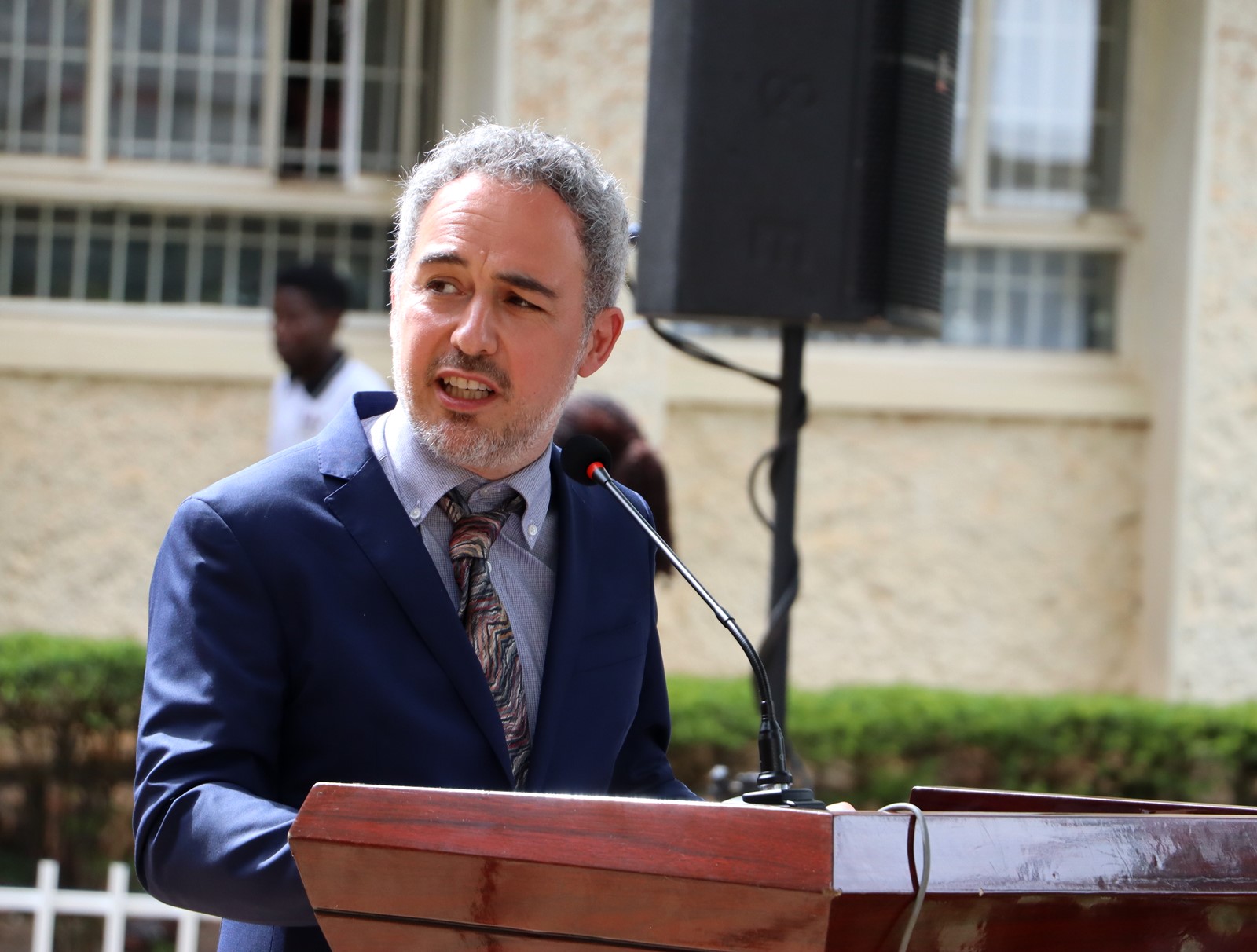
The Italian Ethnological Mission, founded in 1979 by Prof. Francesco Remotti in what was then Zaire (now the Democratic Republic of Congo), has progressively expanded its research footprint across the region—later including Burundi, Rwanda, Tanzania, and Uganda. It officially began its partnership with Makerere in 2004, a relationship Prof. Gusman said has significantly shaped the mission’s academic trajectory.
“The title Connecting Cultures reflects the mission’s core goal understanding and linking diverse societies through shared anthropological inquiry,” Prof. Gusman noted.
He expressed gratitude to the Italian Embassy in Kampala for its continued support, and to the College of Humanities and Social Sciences (CHUSS) at Makerere University for hosting and nurturing the partnership over two decades.
Special acknowledgment was extended to Prof. Cecilia Pennacini, who led the Mission from 2004 to 2018, for deepening the collaboration with Makerere and expanding research into Uganda. Prof. Gusman emphasized that the Mission’s work has always prioritized cultural continuity and regional interconnectivity through language, social structures, and institutions.
“The photographs and texts featured in this exhibition are the result of decades of collaborative research and dialogue,” he said. “They are not just artifacts—they are bridges between nations, histories, and academic traditions.”
Looking forward, Prof. Gusman expressed hope that the partnership would continue to flourish, enhancing academic prestige and generating lasting societal impact.
“Our hope for the future is that these collaborations will grow deeper, bringing not only recognition to the institutions involved but also creating meaningful change across communities,” he concluded.
Makerere’s Prof. Dipio: Italian Collaboration Brings Cultures and Institutions Closer
Professor Dominic Dipio, Coordinator of the ERASMUS Mobility Program at Makerere University, praised the ongoing academic and cultural partnership between Uganda and Italy, calling it a powerful force for diplomacy and institutional connection.
Prof. Dipio highlighted how collaborative efforts between the University of Turin, Makerere, and the Italian Ethnological Mission in the Great Lakes Region have served to “bring Italy closer to Uganda.”
“Exhibitions like this are important because many Ugandans, especially those shaped by British colonial heritage, know little about Italy. These events narrow that gap,” she said.
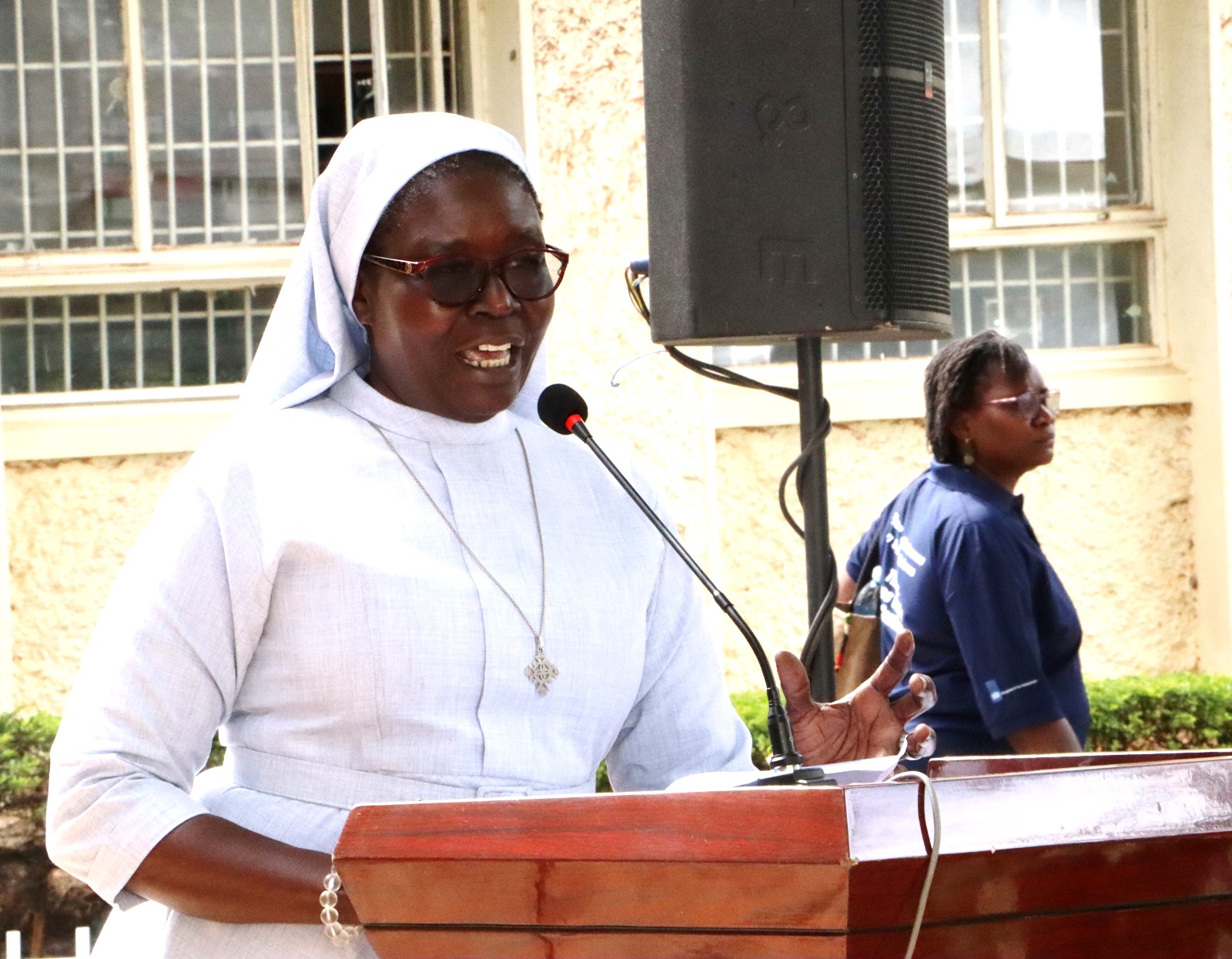
The exhibition, organized in partnership with the Italian Embassy in Kampala, builds on a previous one held in 2022. Prof. Dipio lauded the long-standing academic ties facilitated by the European Union’s Erasmus+ program, which has enabled robust student and staff mobility between the two universities since 2016.
“This triangular relationship between the Government of Italy, Erasmus+, and our universities has allowed Makerere students to spend up to ten months in Italy completing their dissertations — a rare opportunity that boosts our PhD completion rates significantly,” he noted.
Prof. Dipio emphasized the critical role of scholars in diplomacy, stating that research and academic exchange naturally weave connections across cultures and borders.
“The work of scholars often goes beyond classrooms and papers. It becomes a means of international dialogue and peacebuilding,” he said.
She also commended the logistical teams from Makerere, the University of Turin, and the Italian Embassy — particularly the visa section — for enabling seamless academic travel.
“Your commitment, your flexibility, and your belief in this partnership have made it thrive. We are grateful,” Dipio said, addressing embassy representatives present.
The exhibition showcases decades of ethnographic research by the Italian mission and emphasizes themes of cultural continuity, social institutions, and intercultural exchange in the Great Lakes region. Prof. Dipio expressed hope that the exhibition panels remain accessible for more students and faculty to benefit from before the academic break.
“We pray this collaboration continues to flourish. It is not just institutional — it is deeply personal. We now call each other by our first names, a sign of the trust and friendship we’ve built,” she concluded.
The Connecting Cultures exhibition is part of a broader movement at Makerere University to internationalize its academic outlook and deepen ties with institutions around the world, especially in the humanities and social sciences.
Jane Anyango is the Principal Communication Officer CHUSS
Trending
-

 General4 days ago
General4 days agoMature Age Scheme Exam Results for 2025/2026
-

 General1 week ago
General1 week agoFreshers’ Joining Instructions 2025/2026
-

 General1 week ago
General1 week agoMastercard Foundation Board pays its inaugural visit to Makerere University
-

 General1 week ago
General1 week agoUVCF Makes Case for HEAC Programme
-
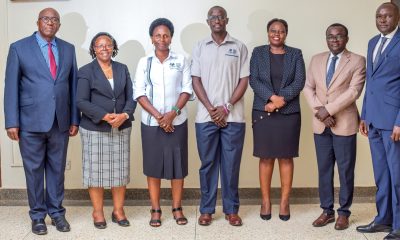
 General2 weeks ago
General2 weeks agoCall For Expression of Interest: MURBS MIS Requirements Gathering
